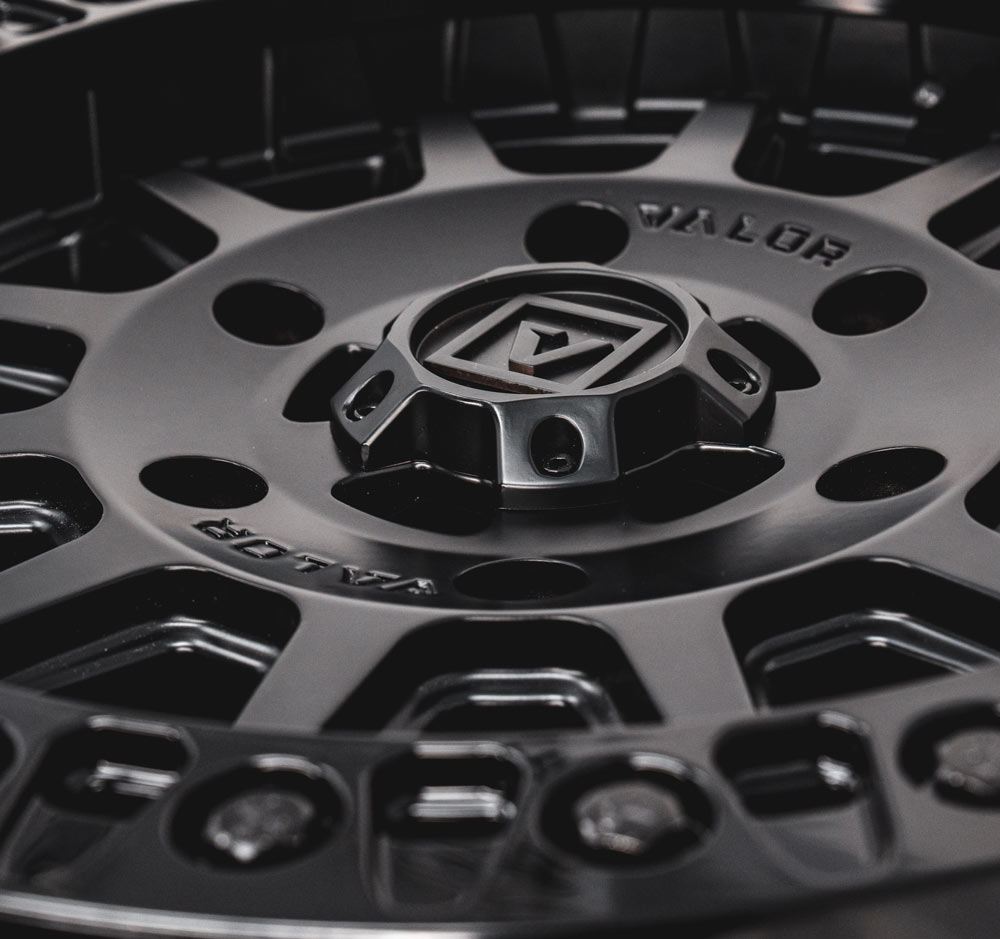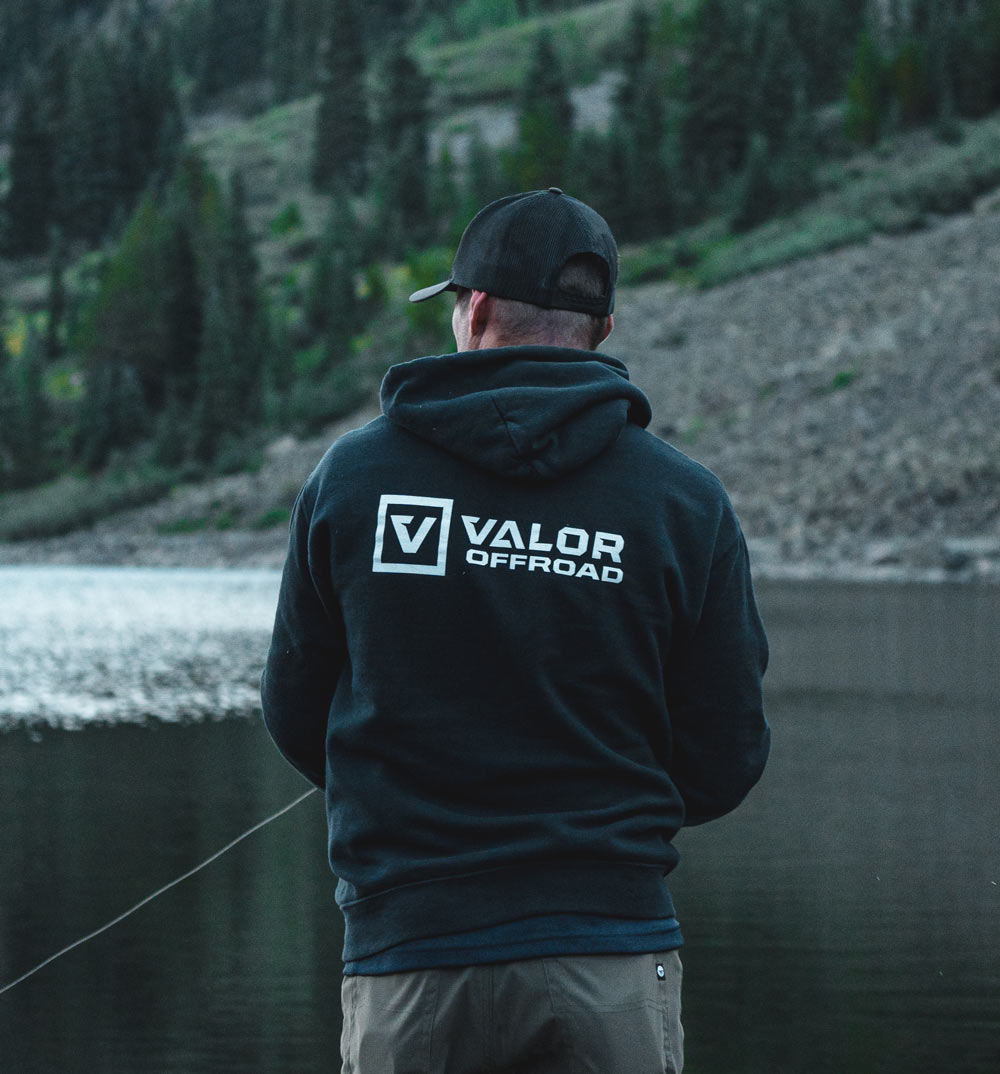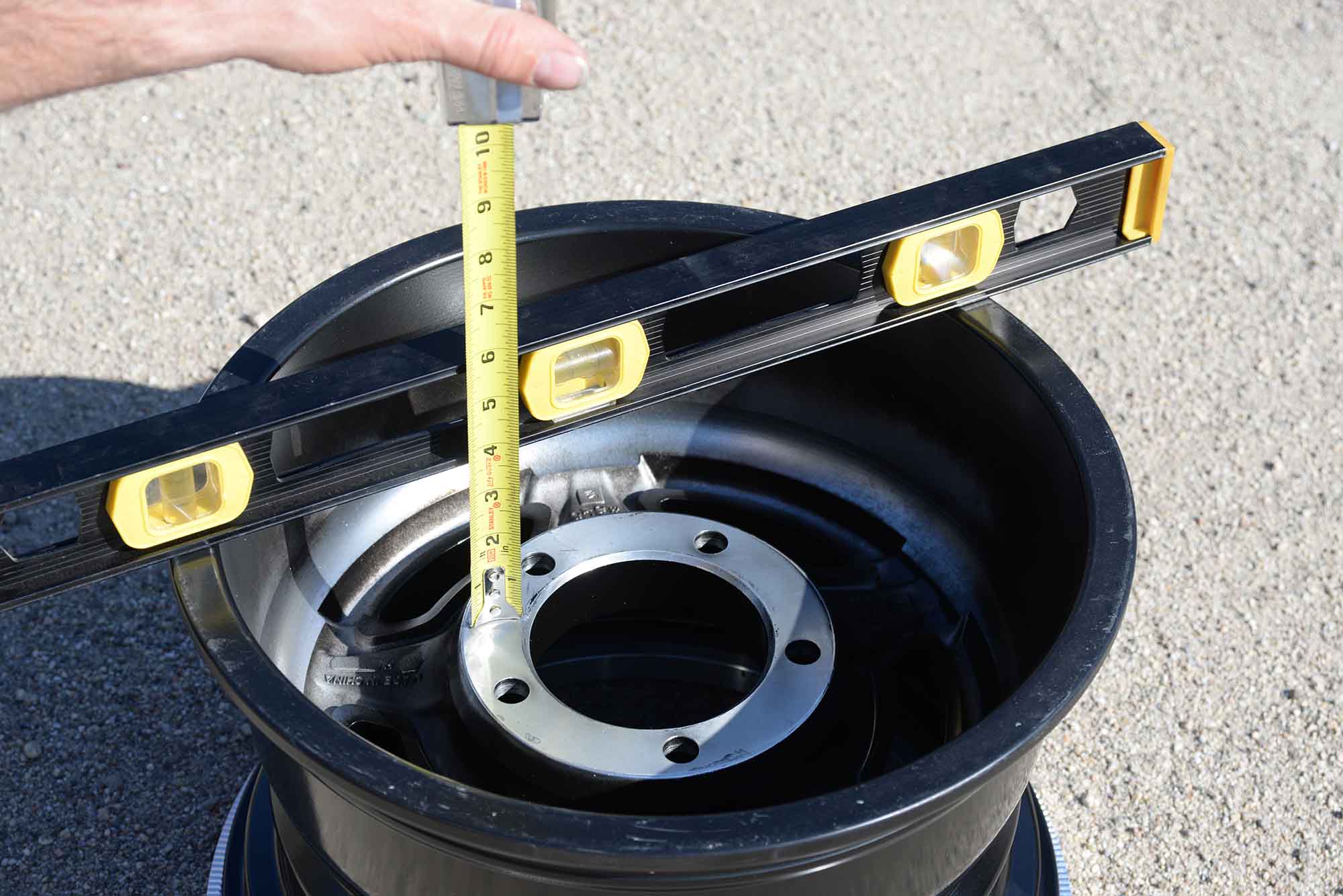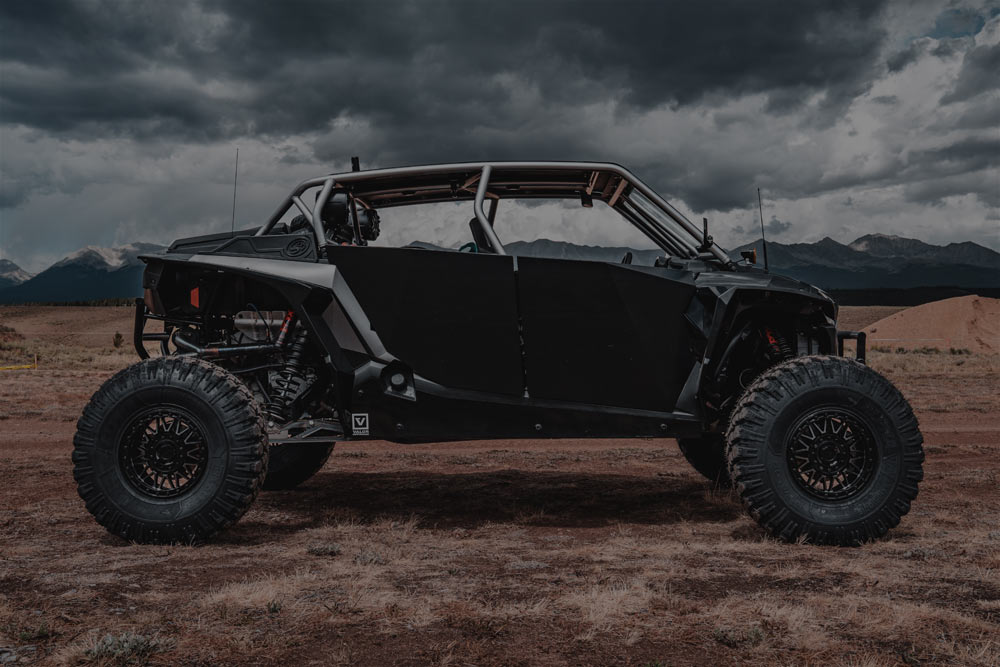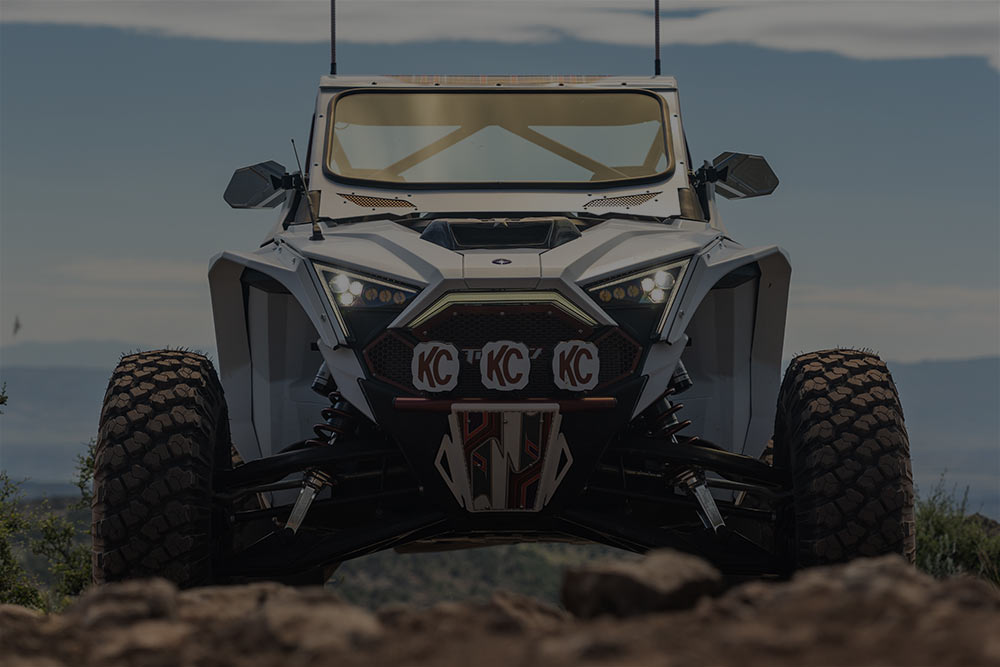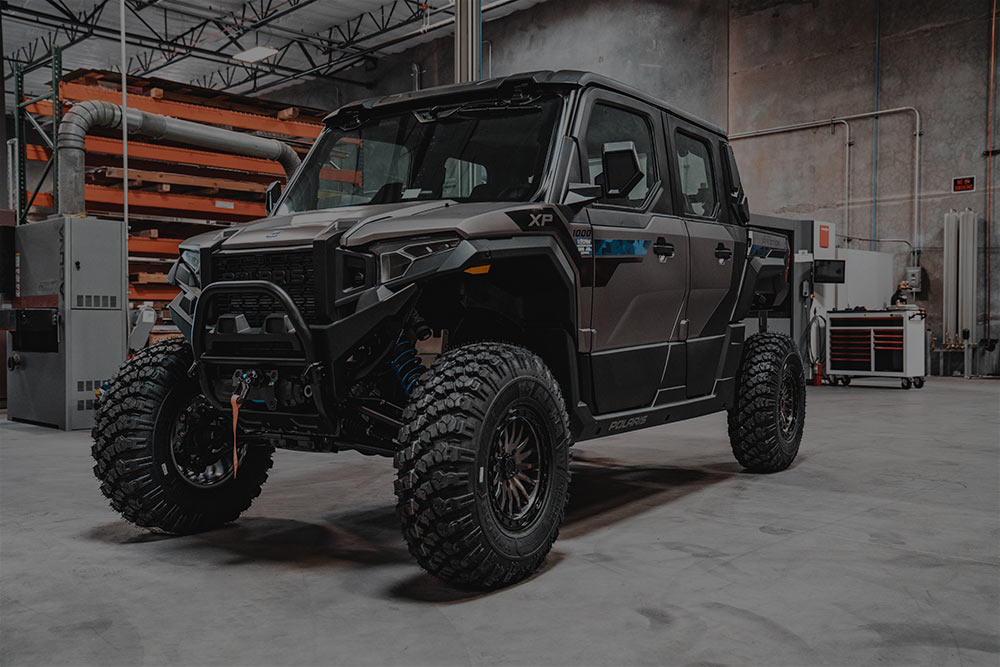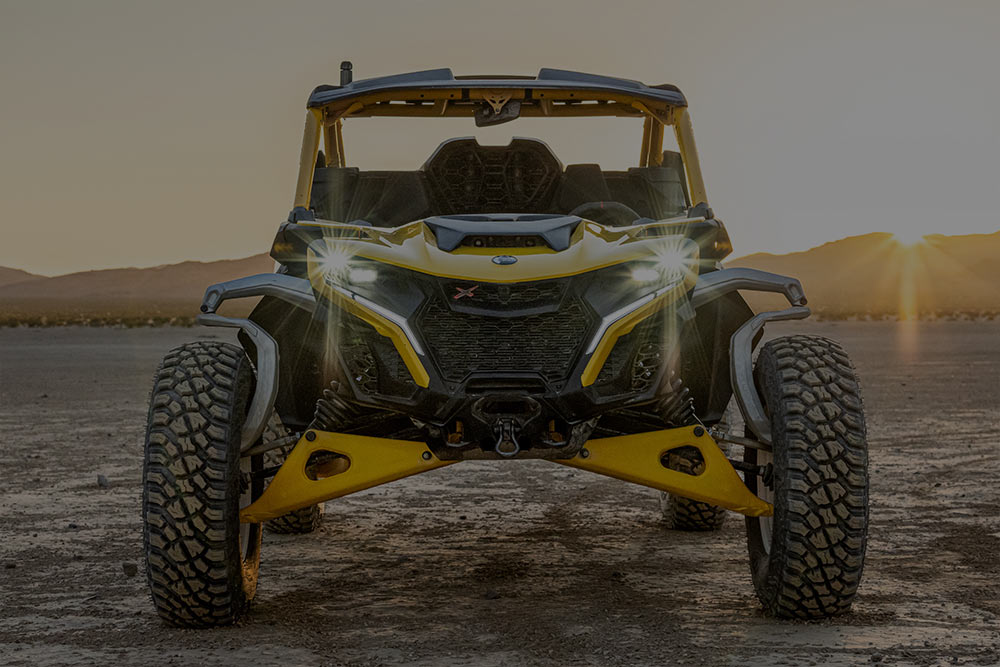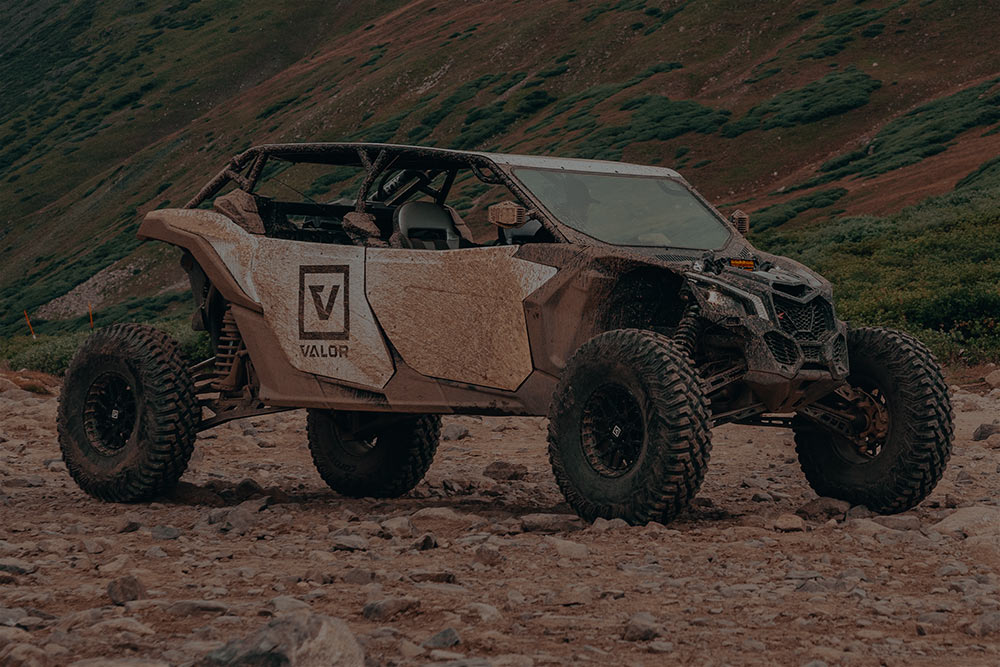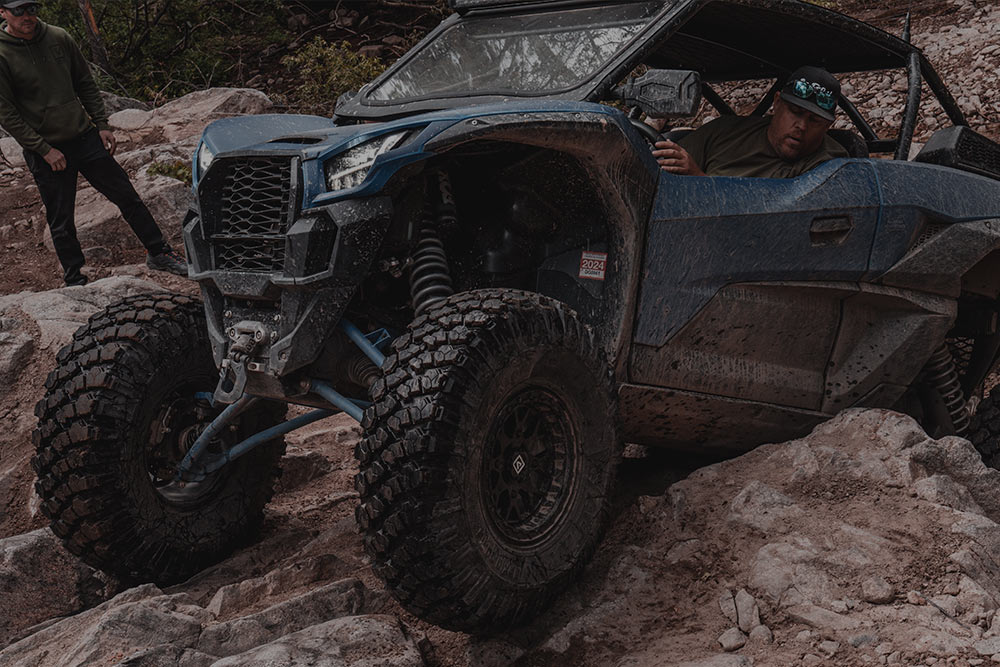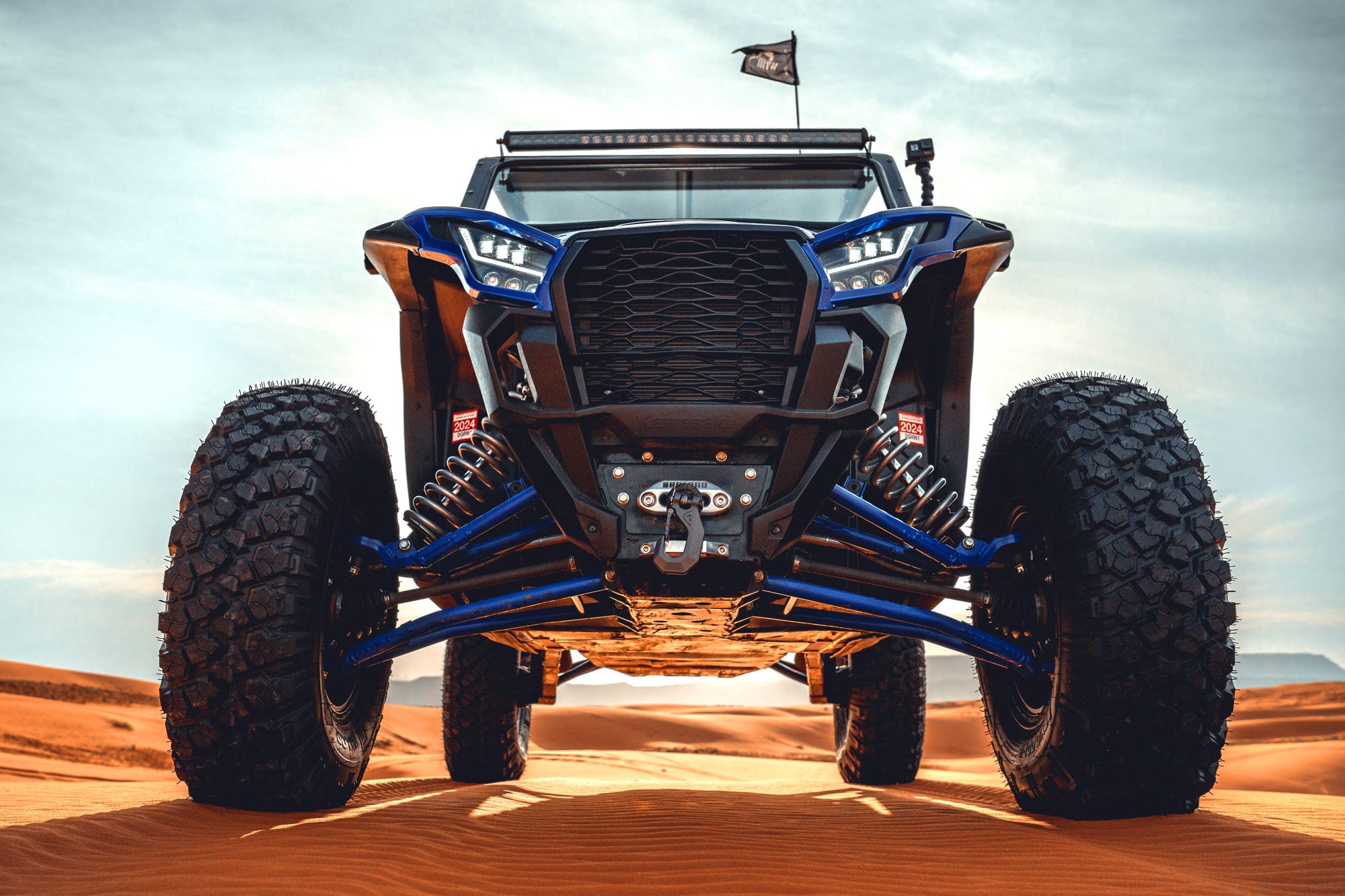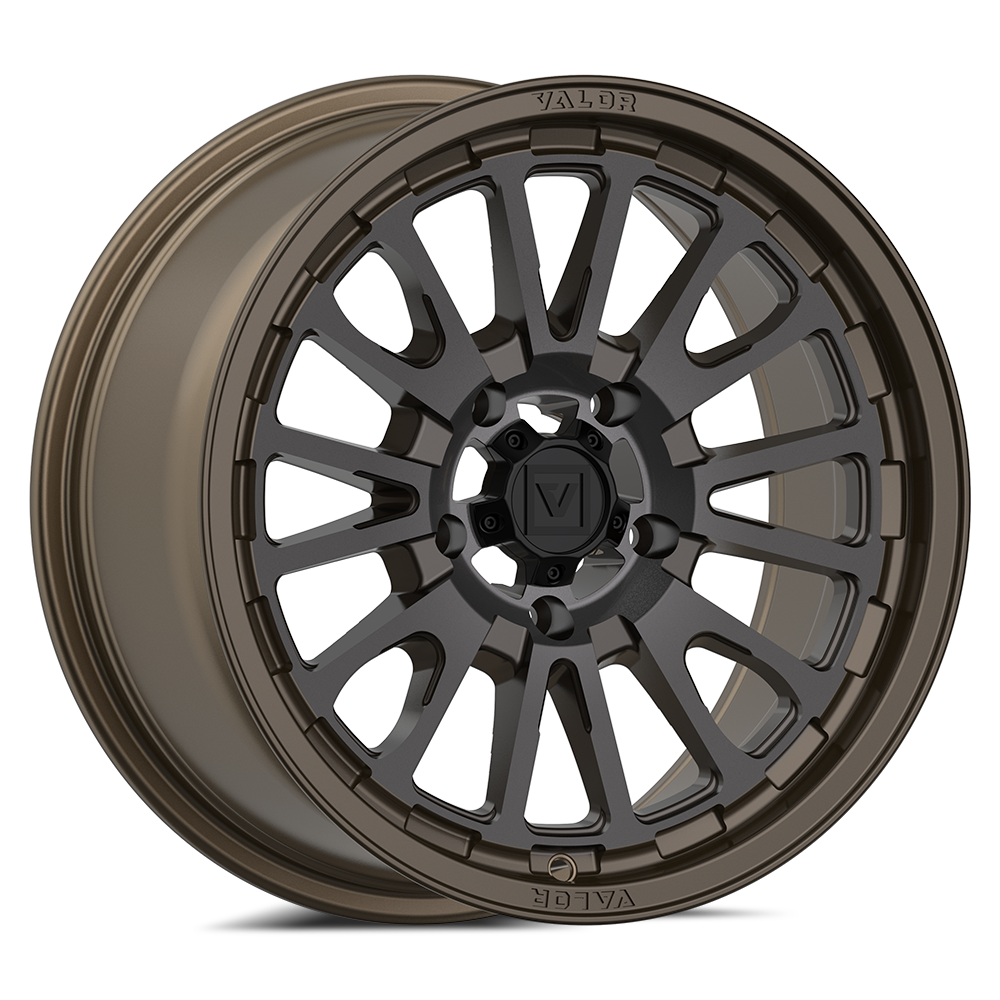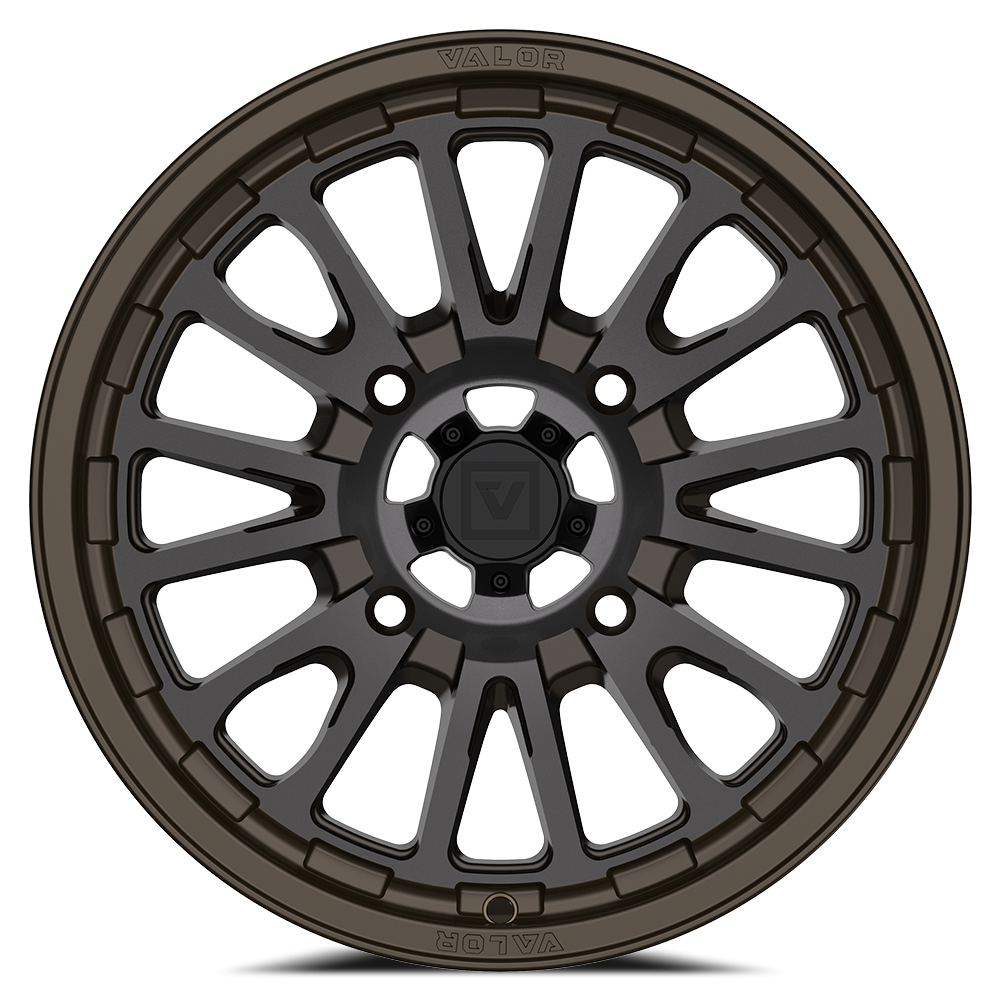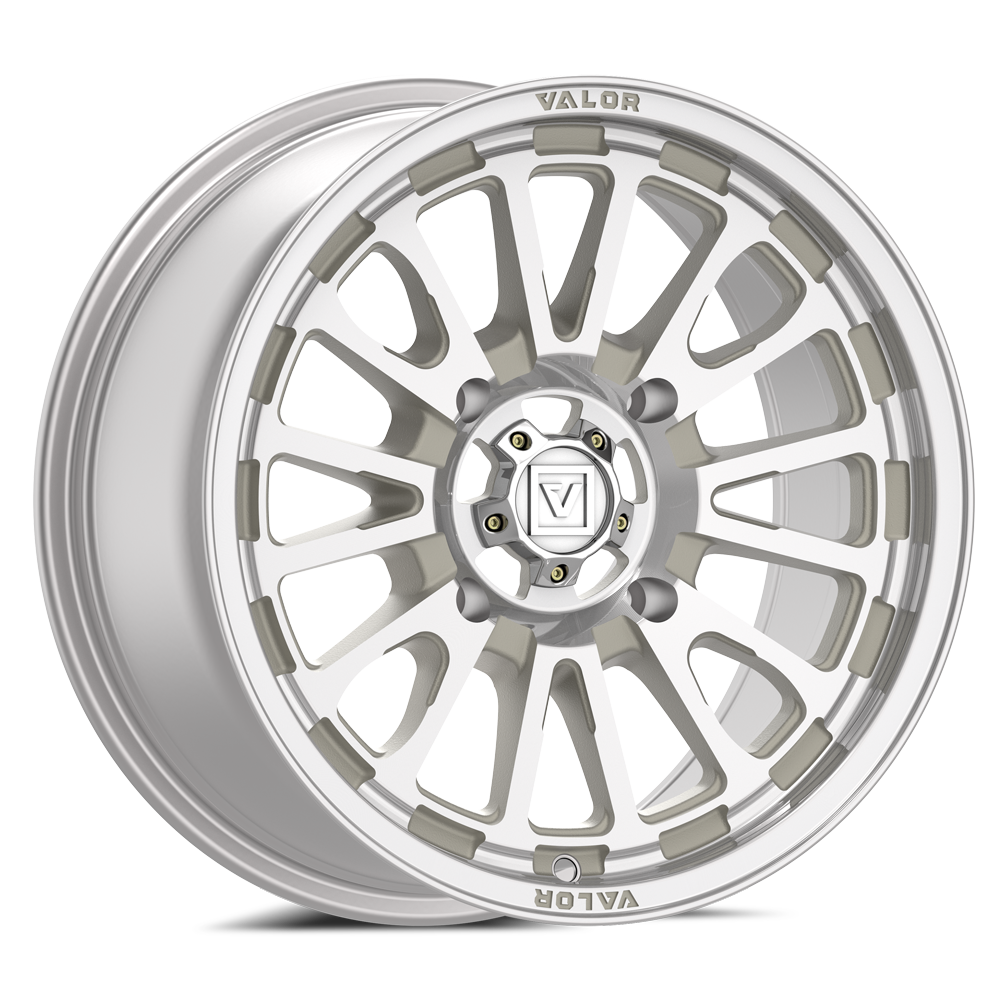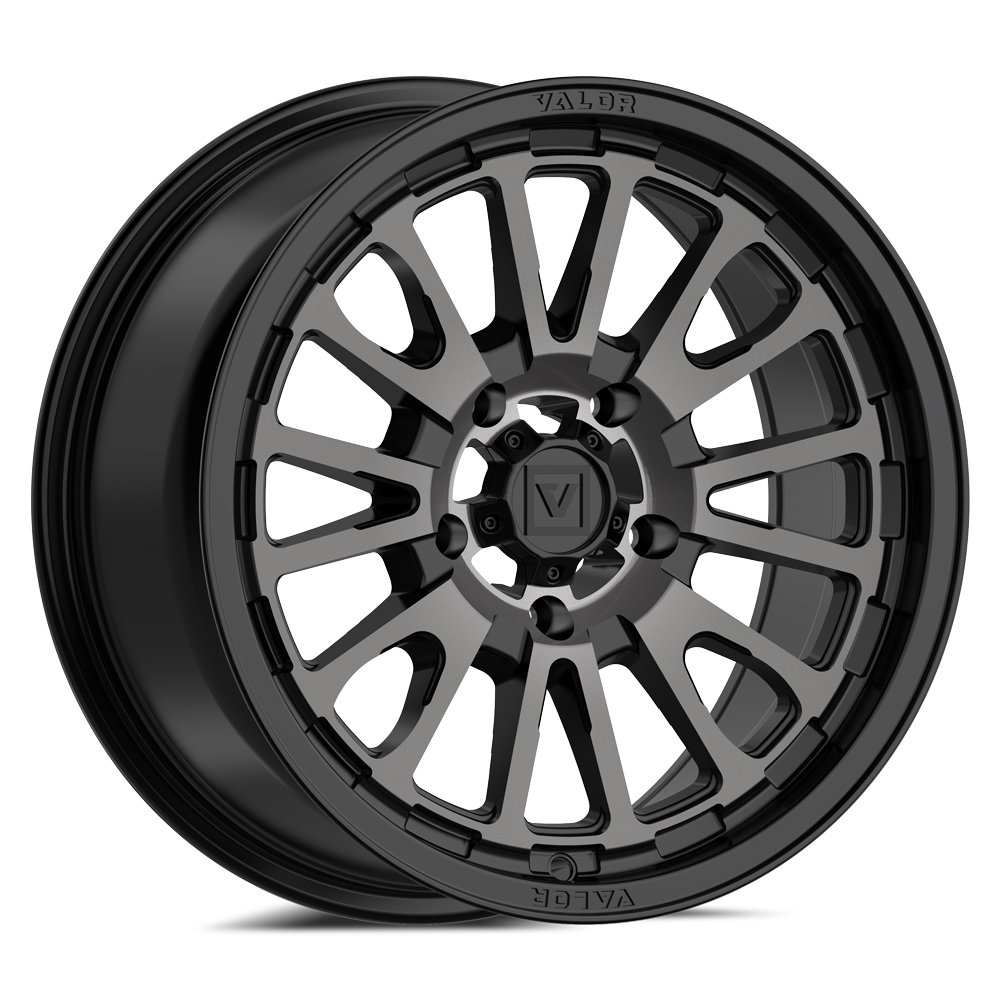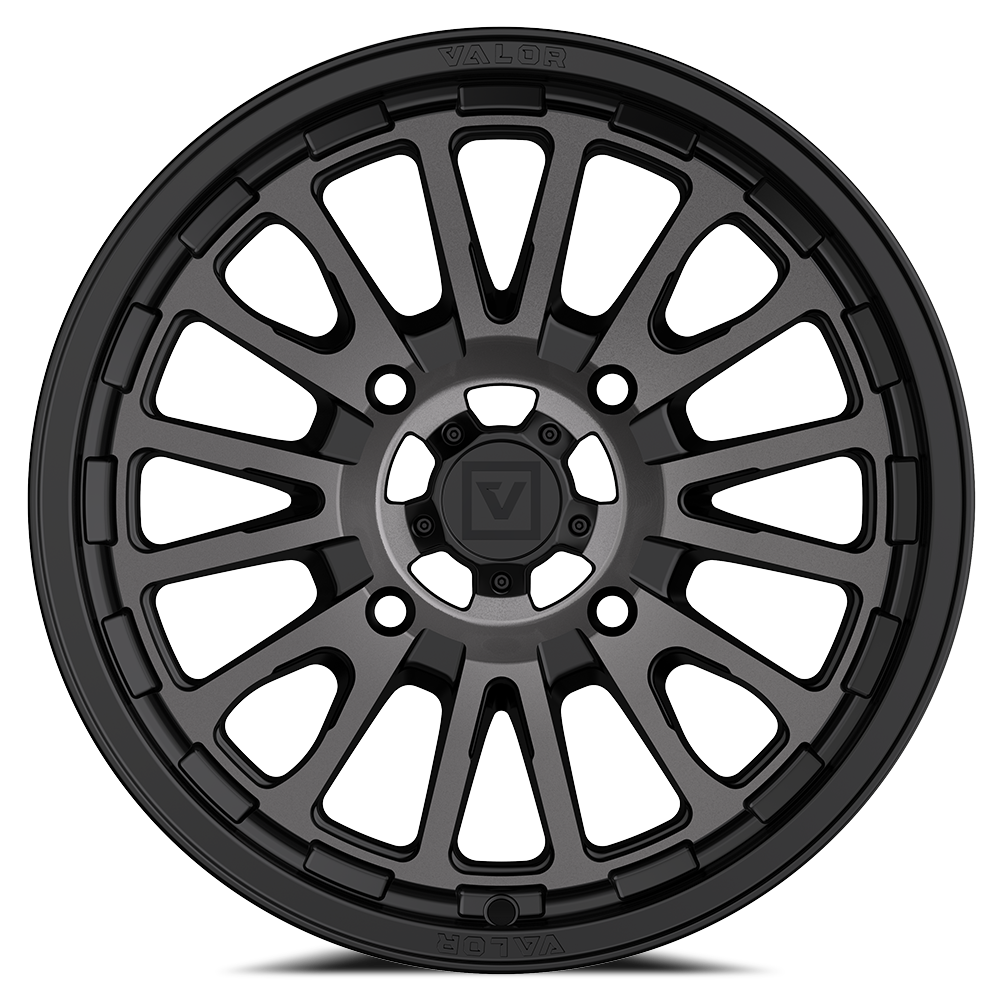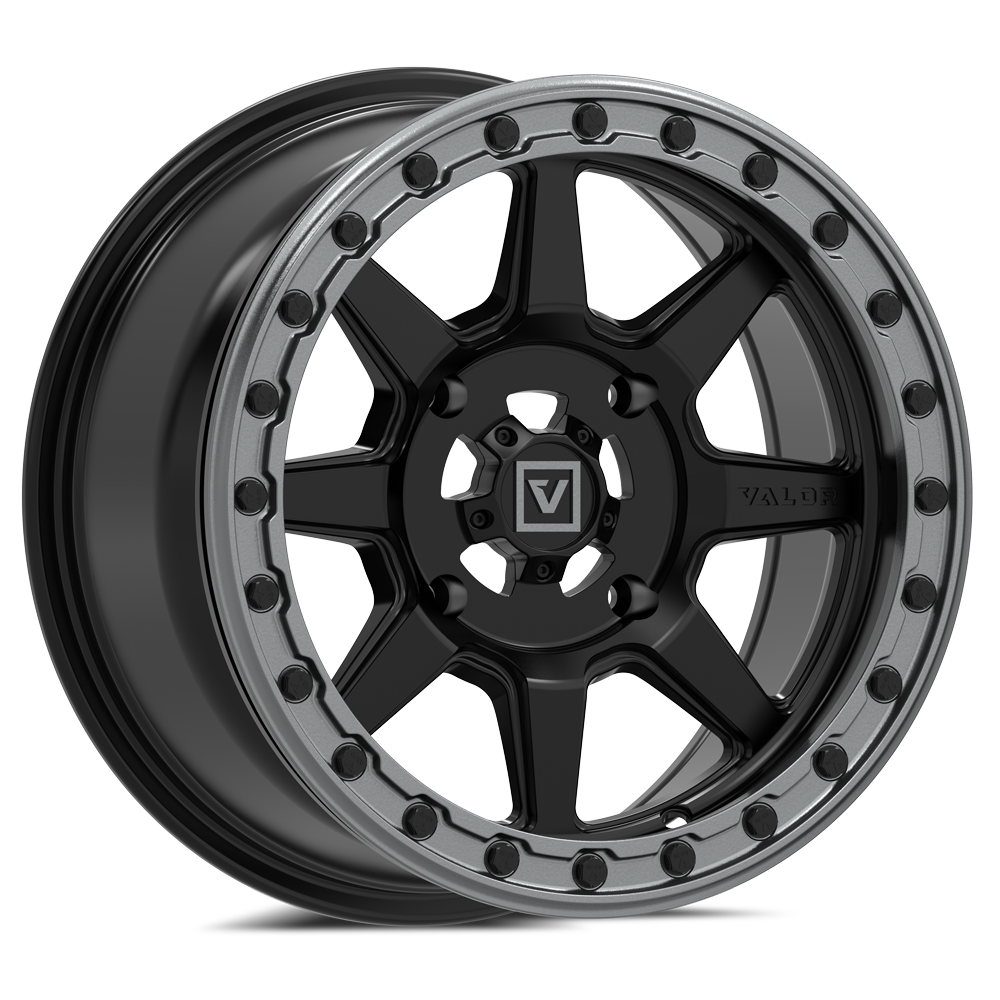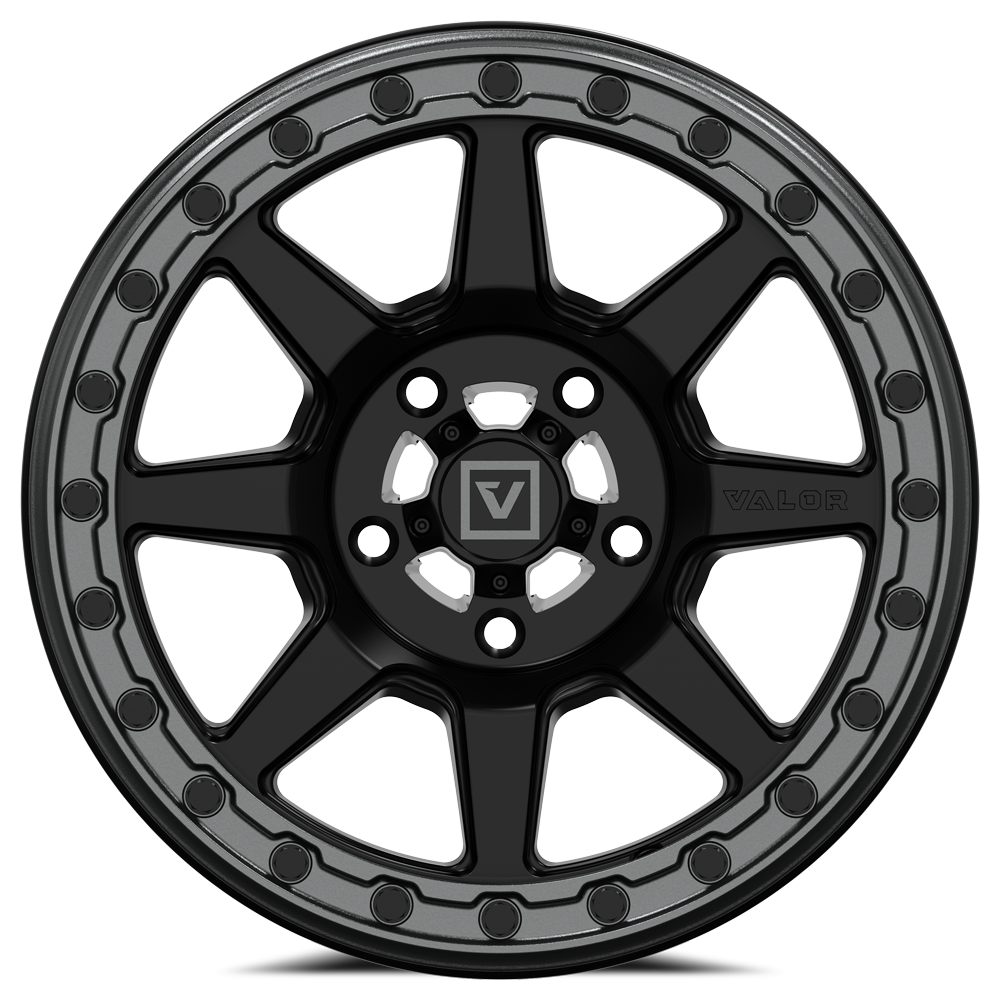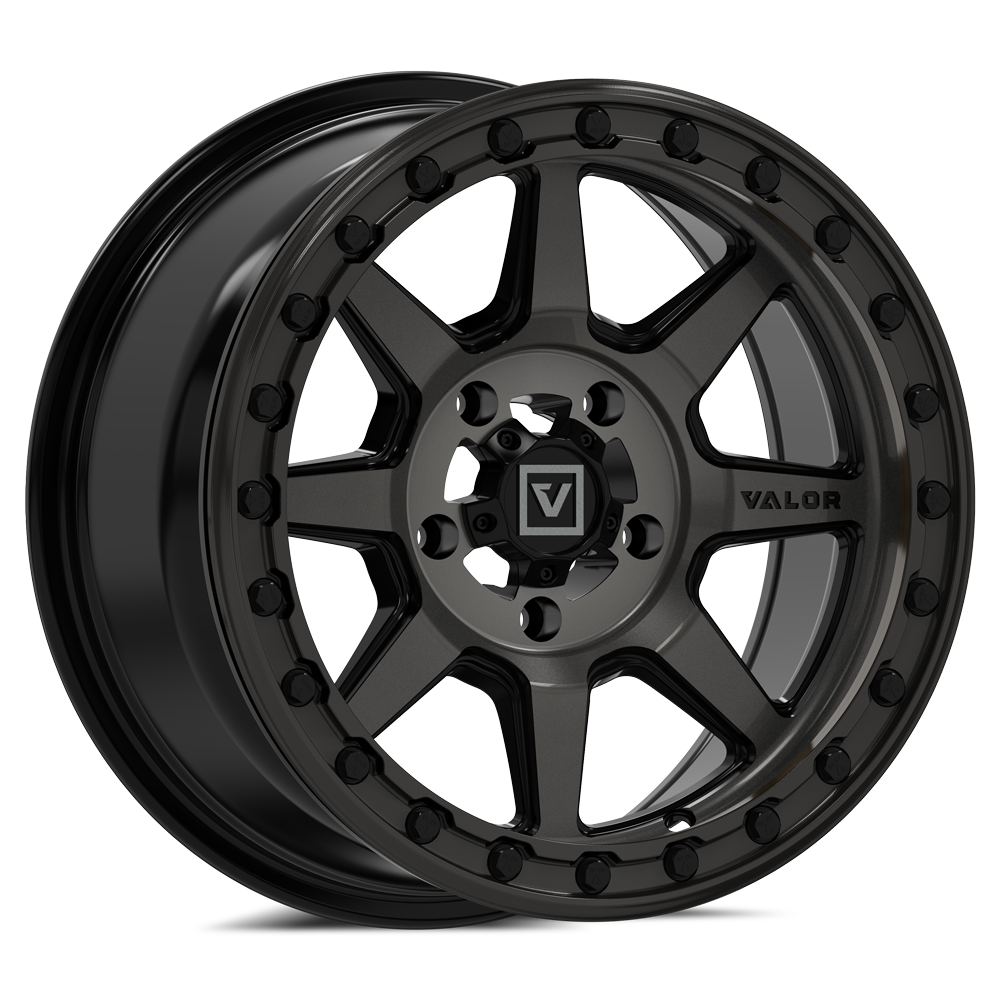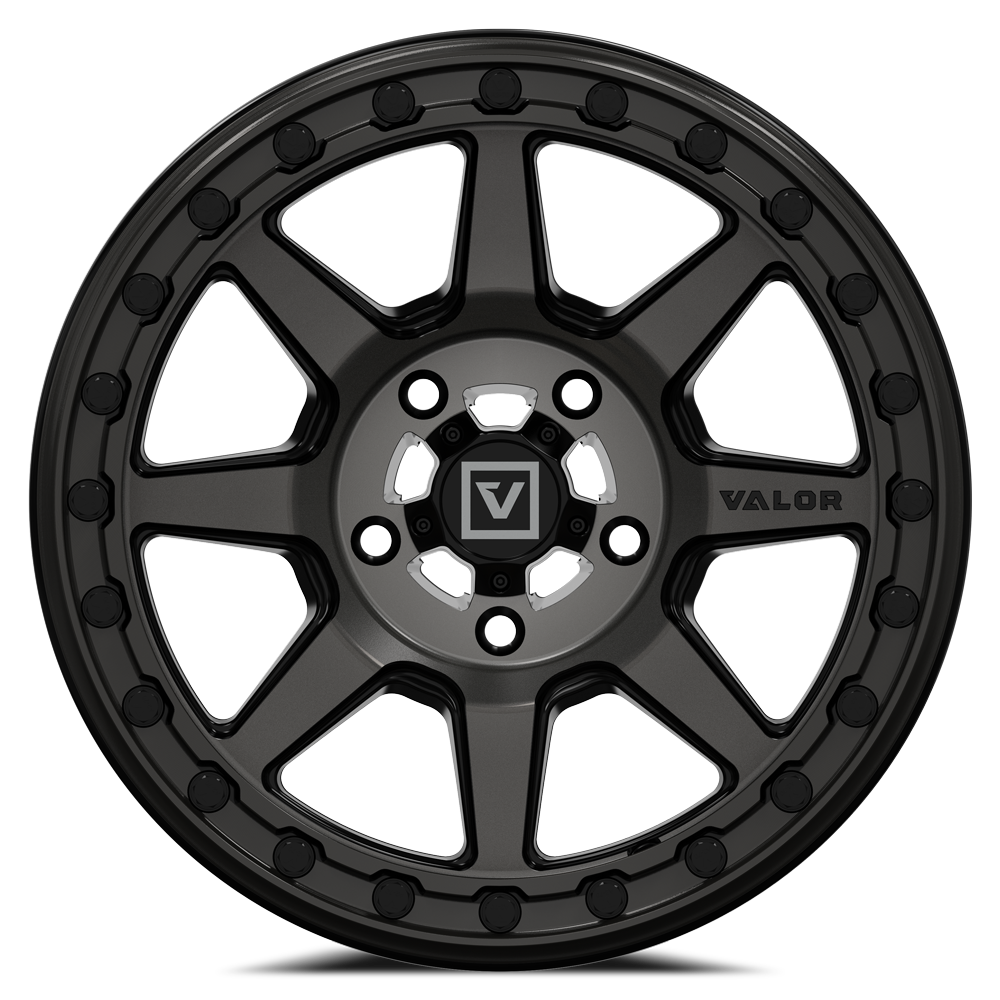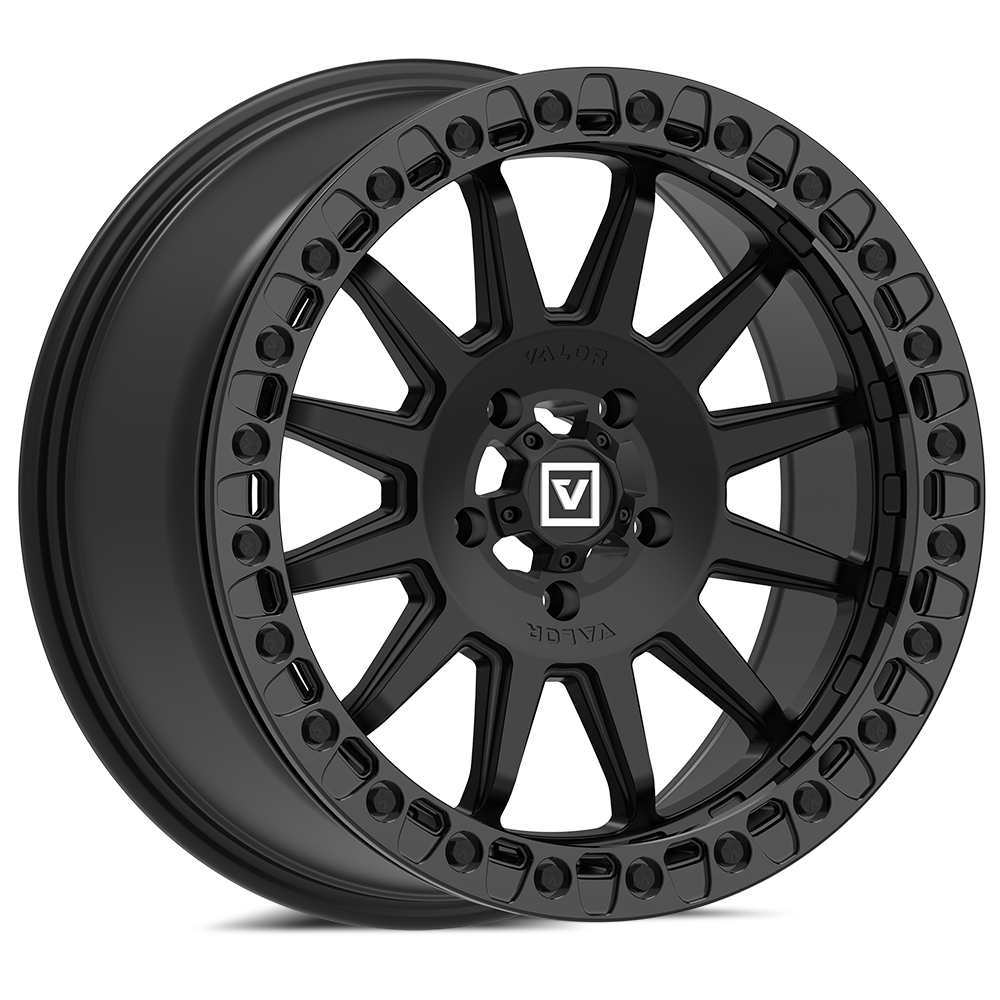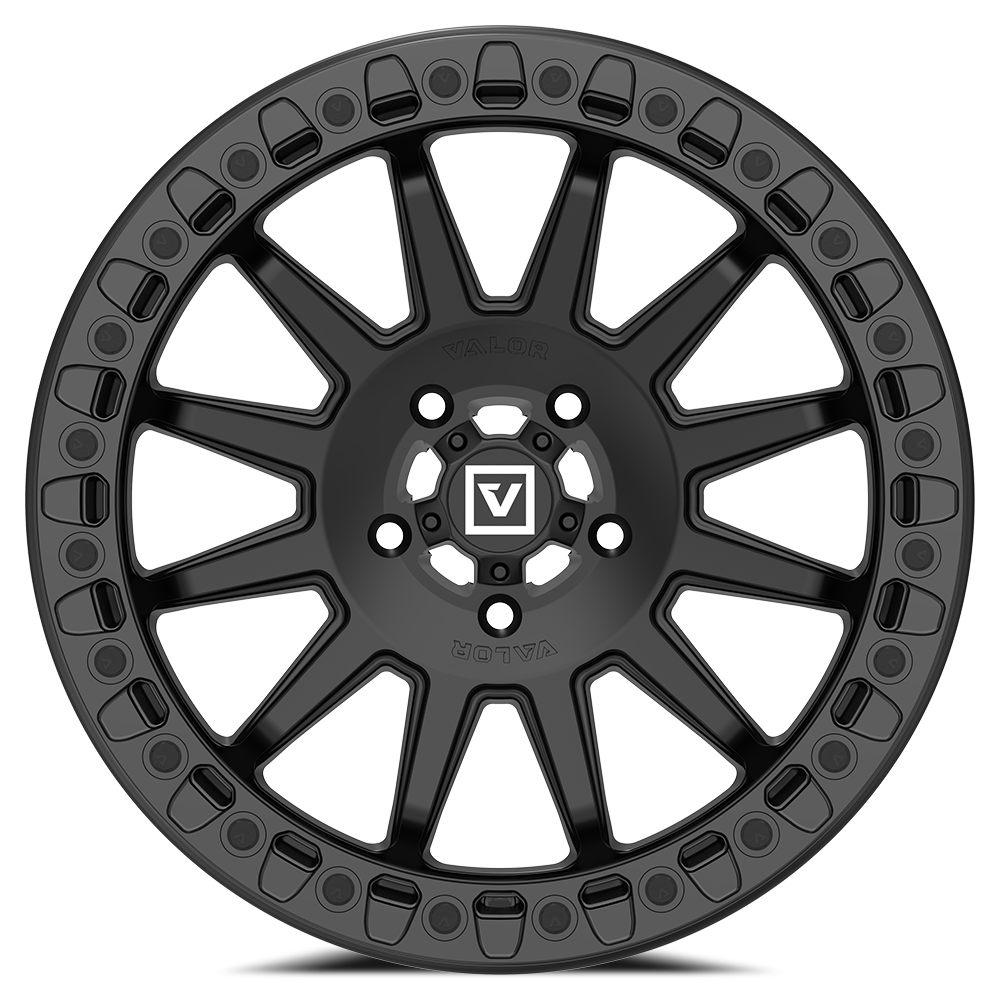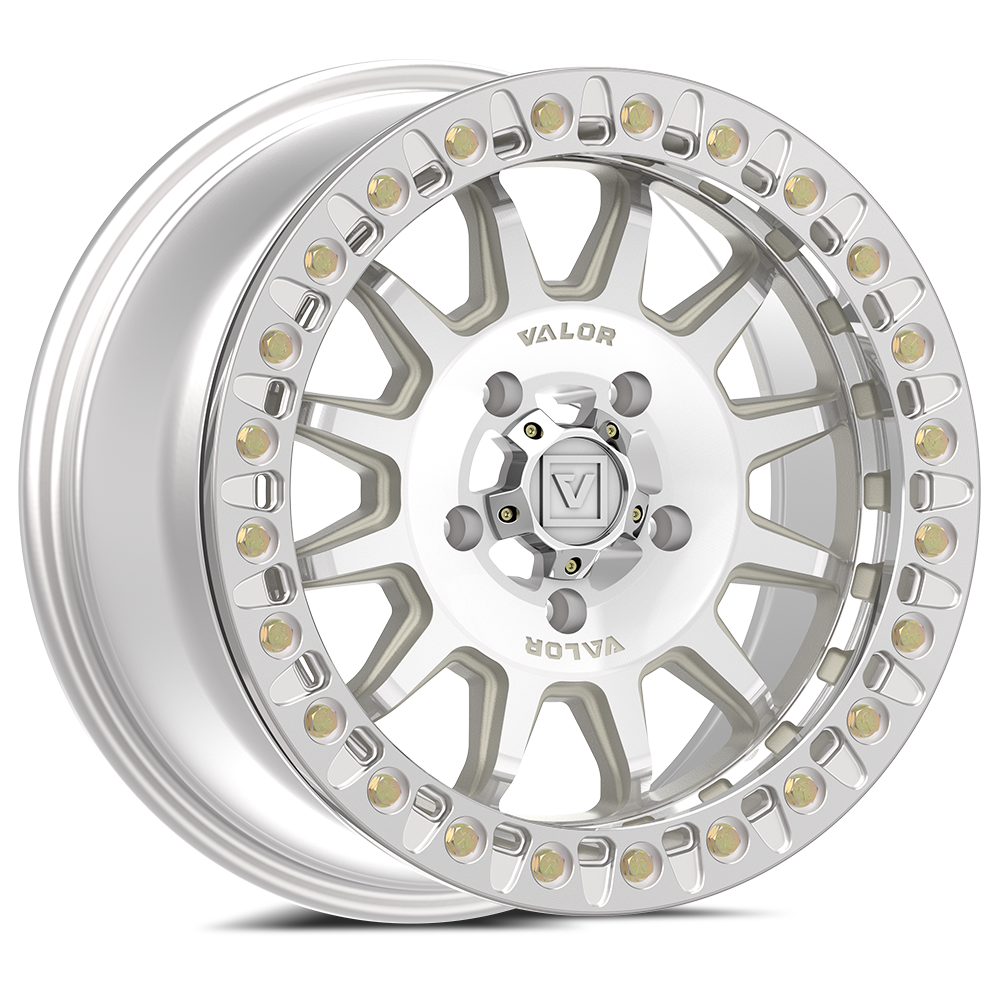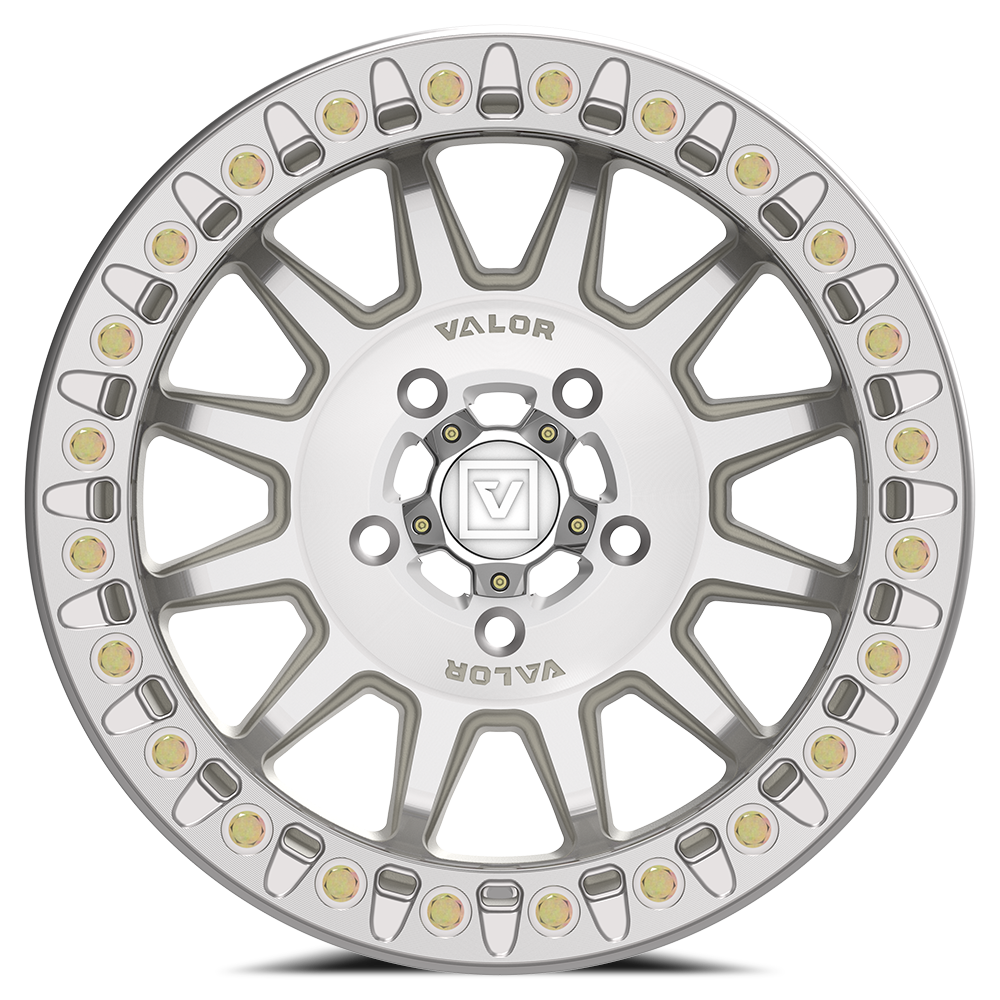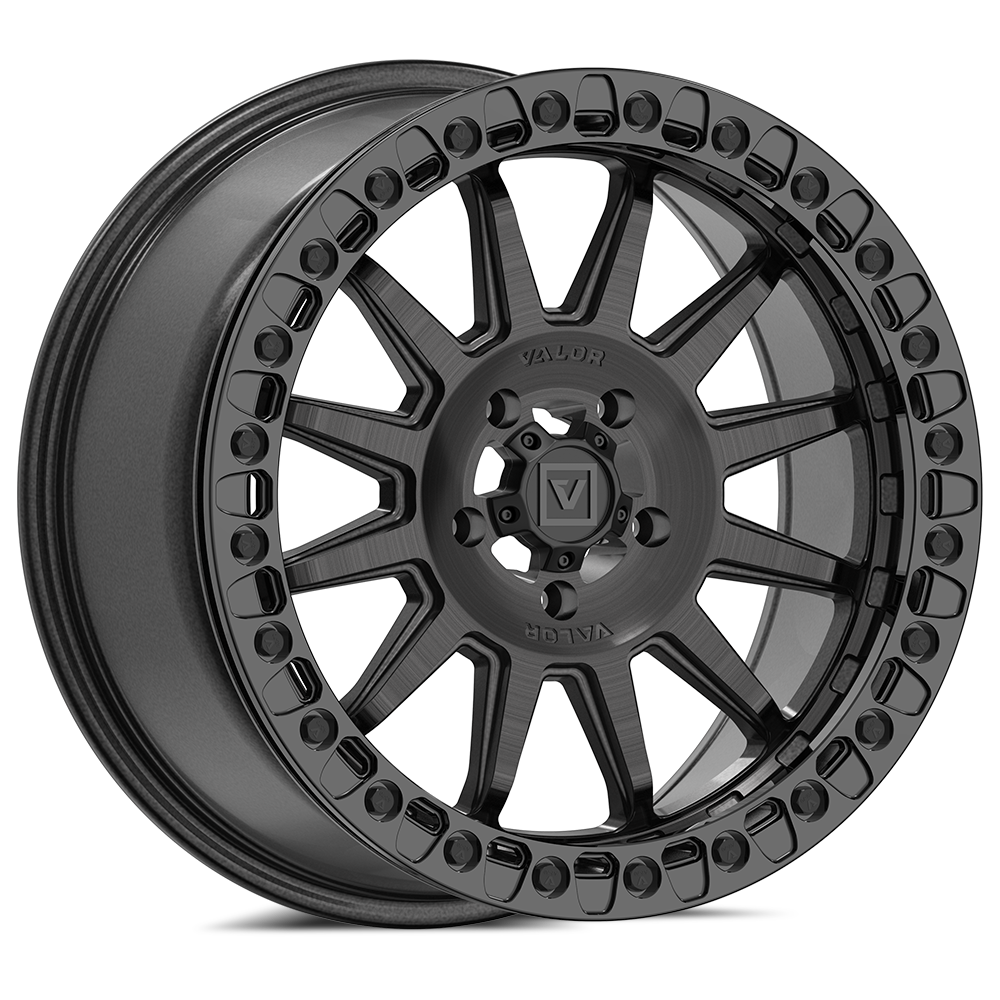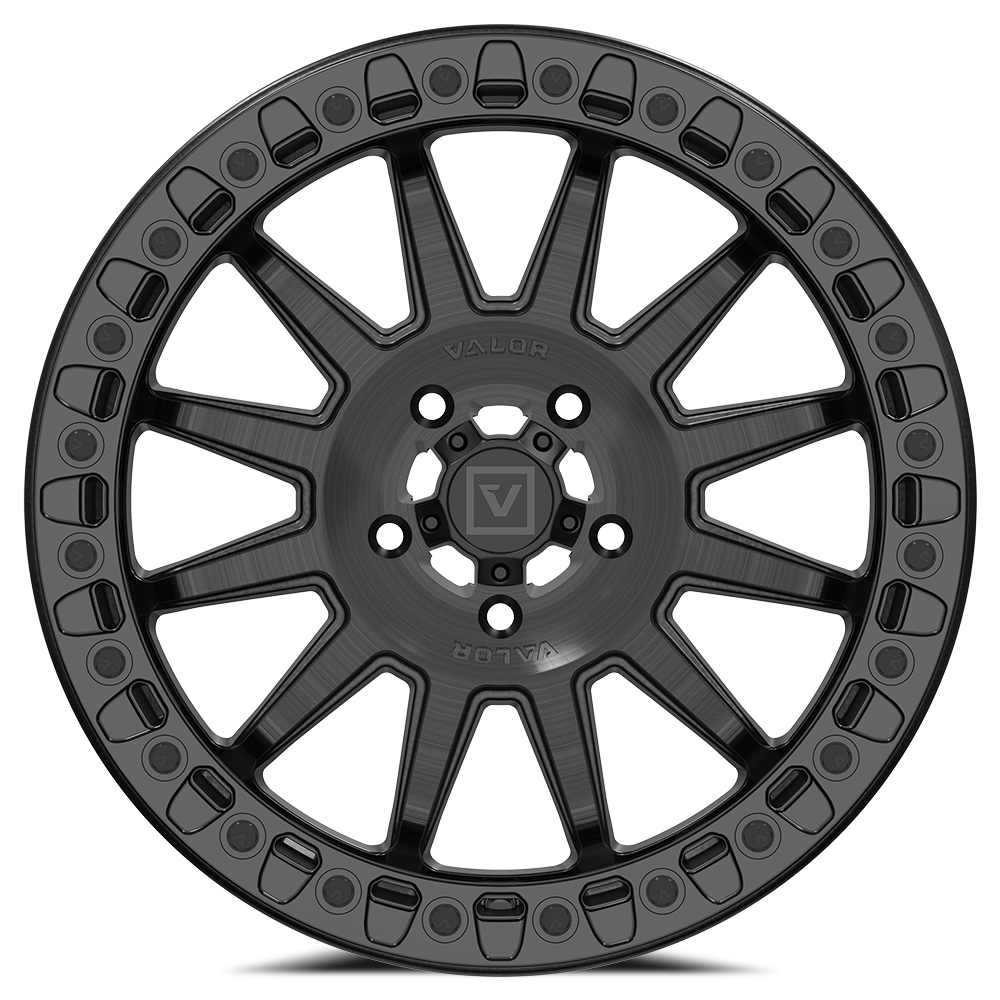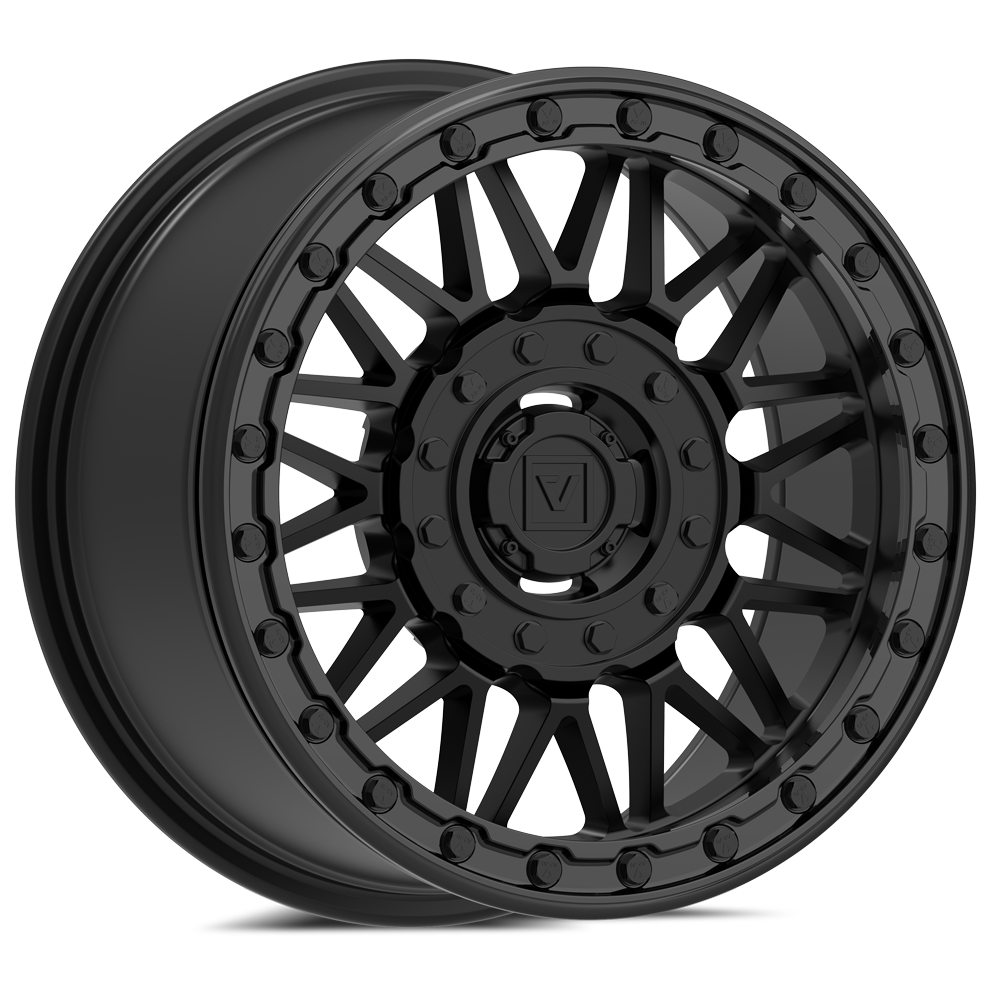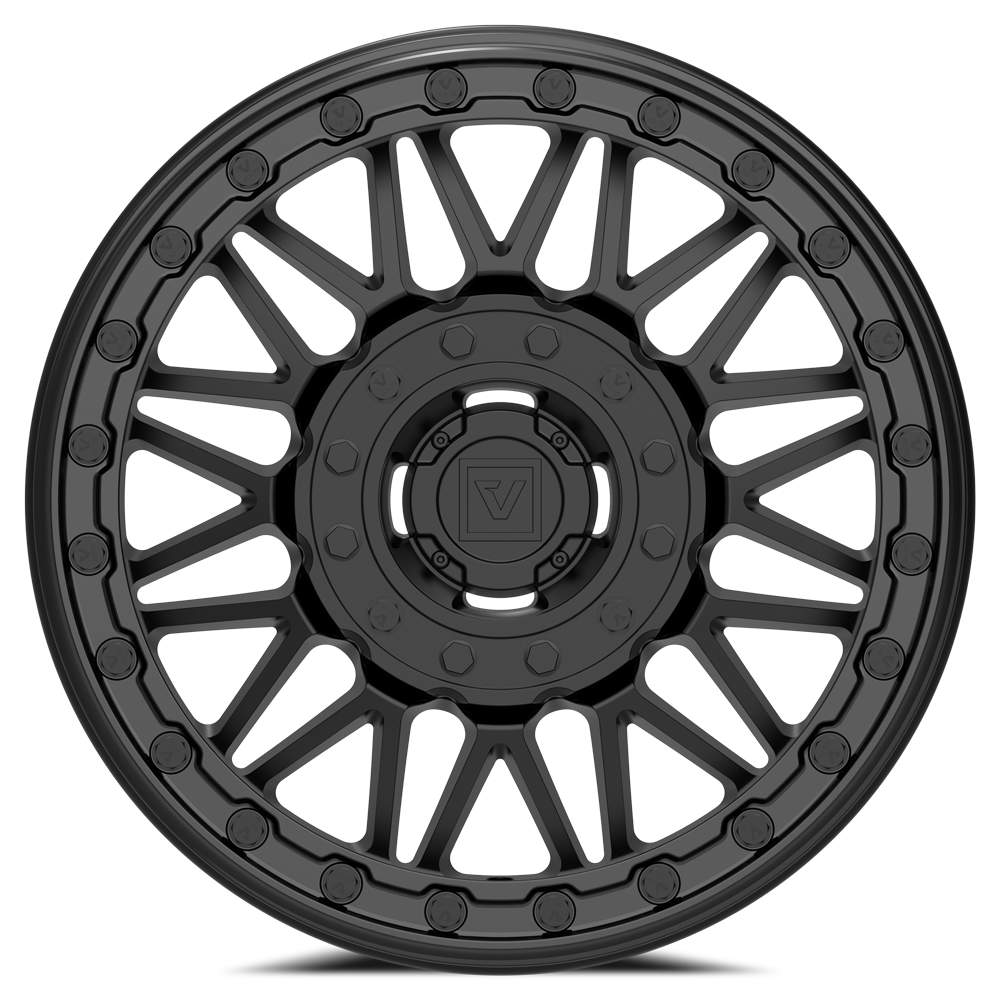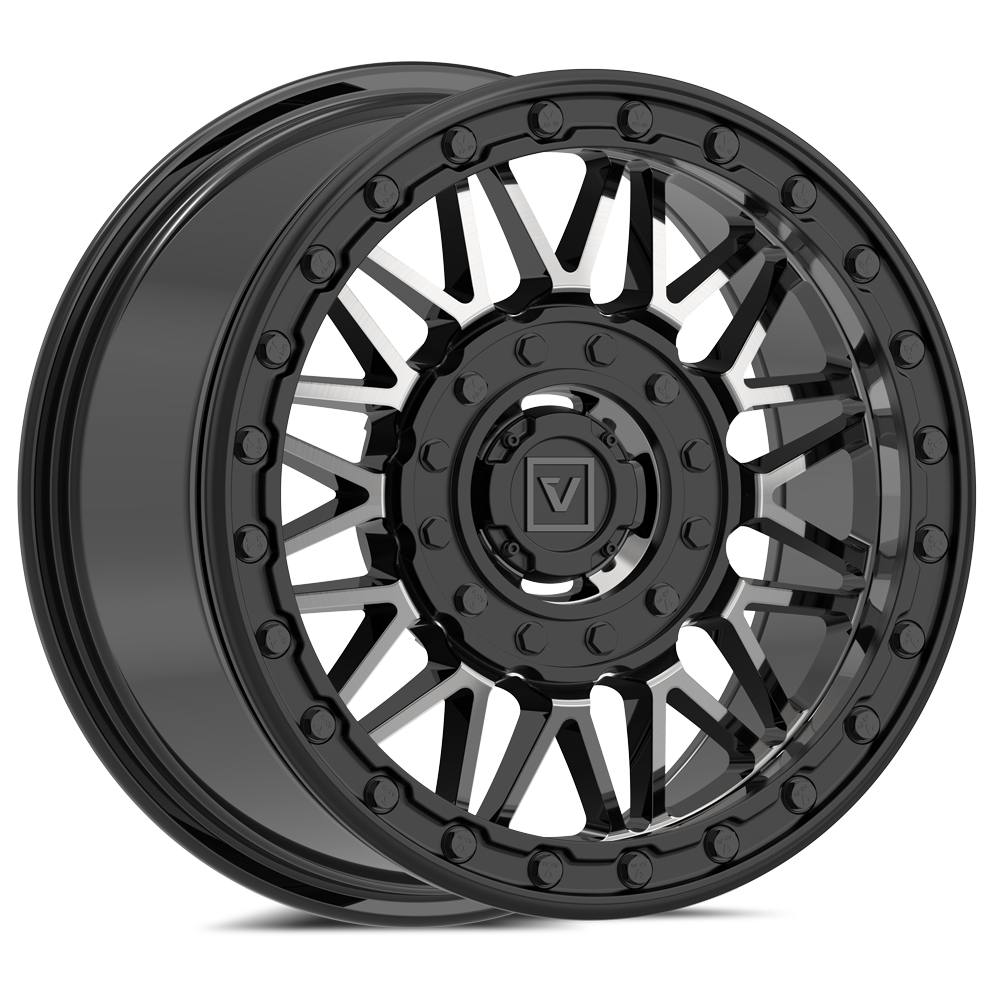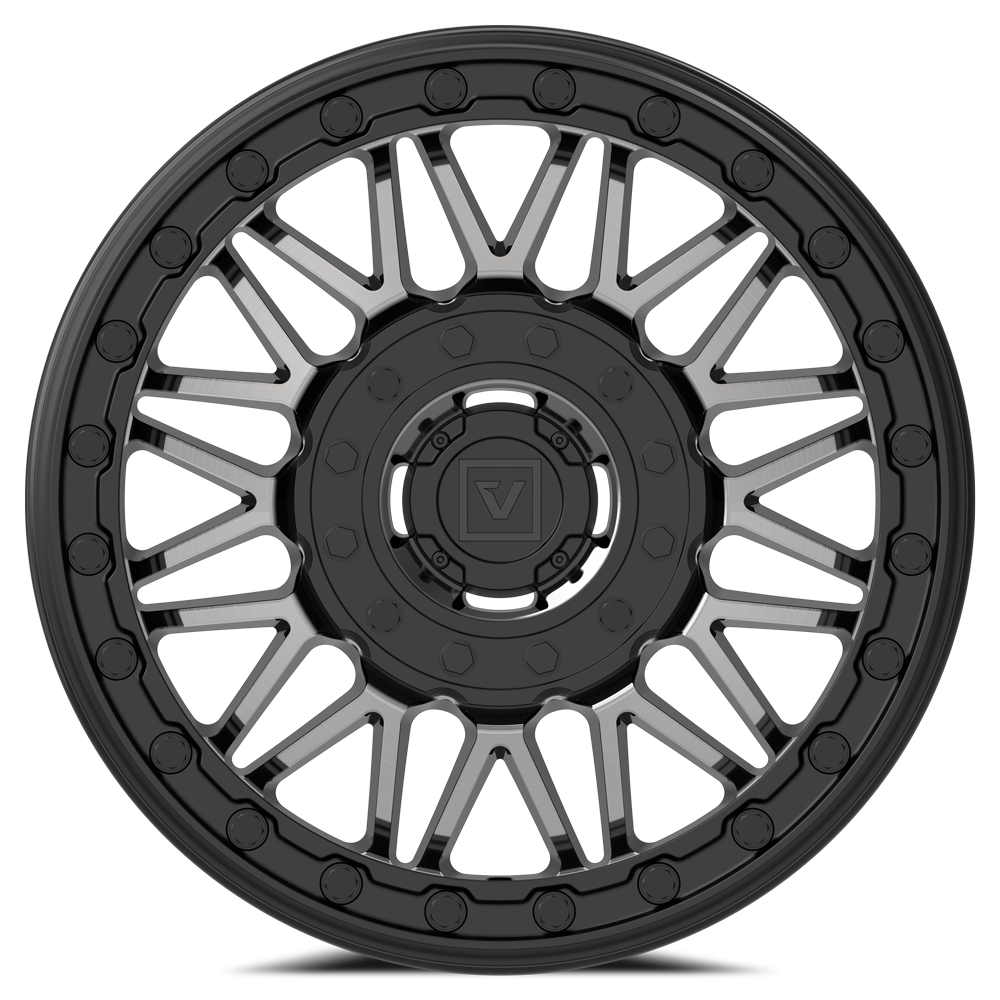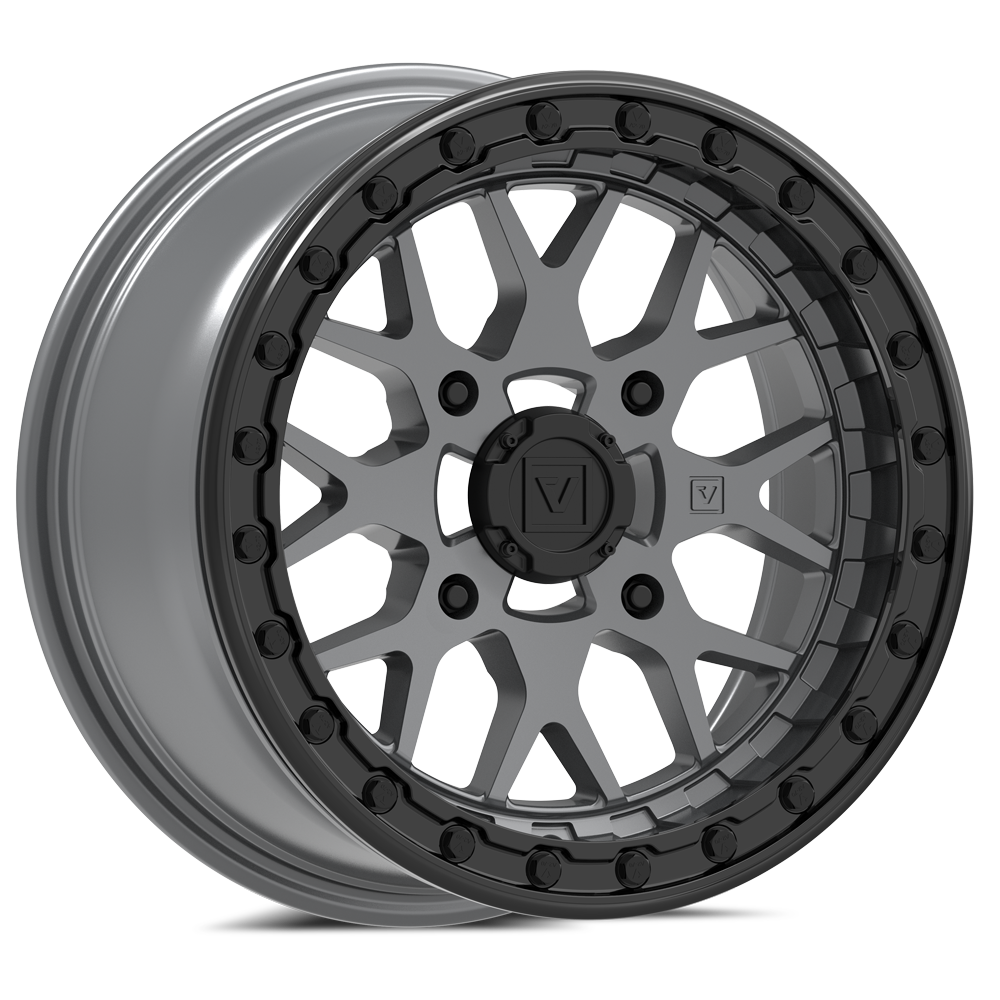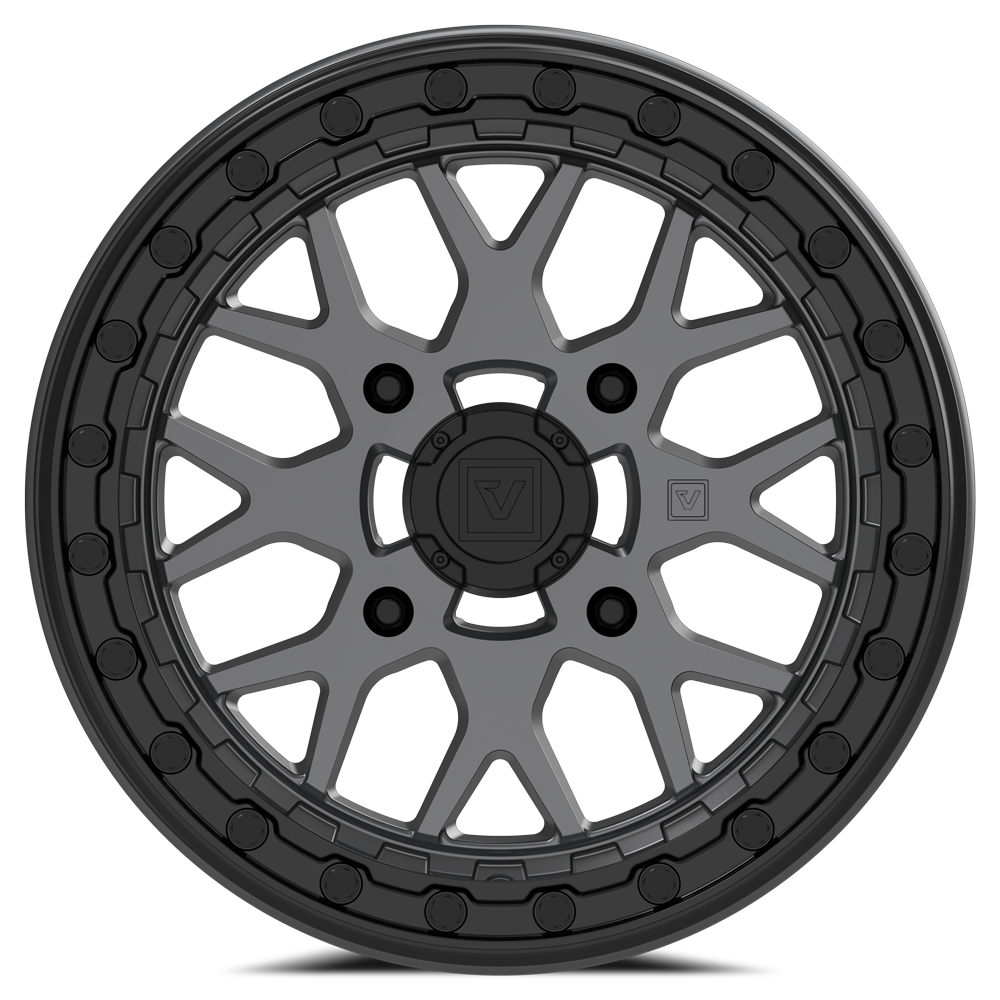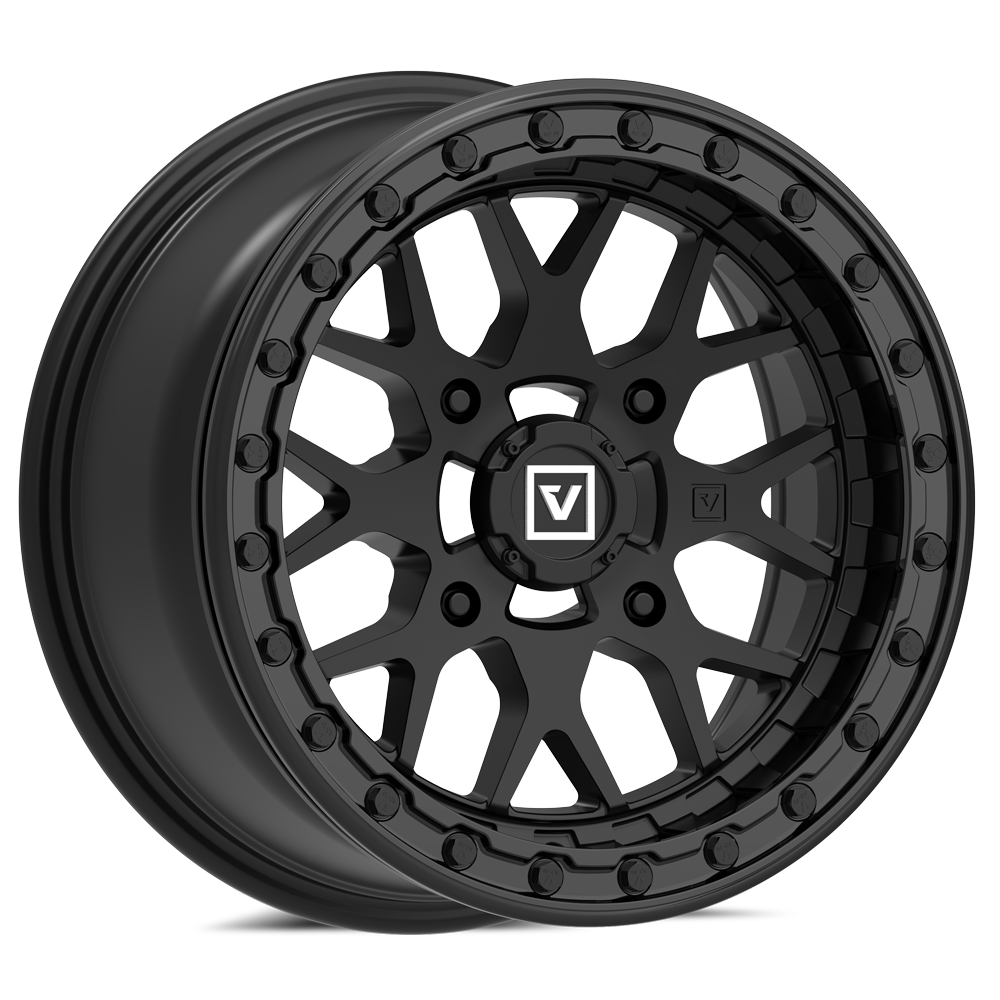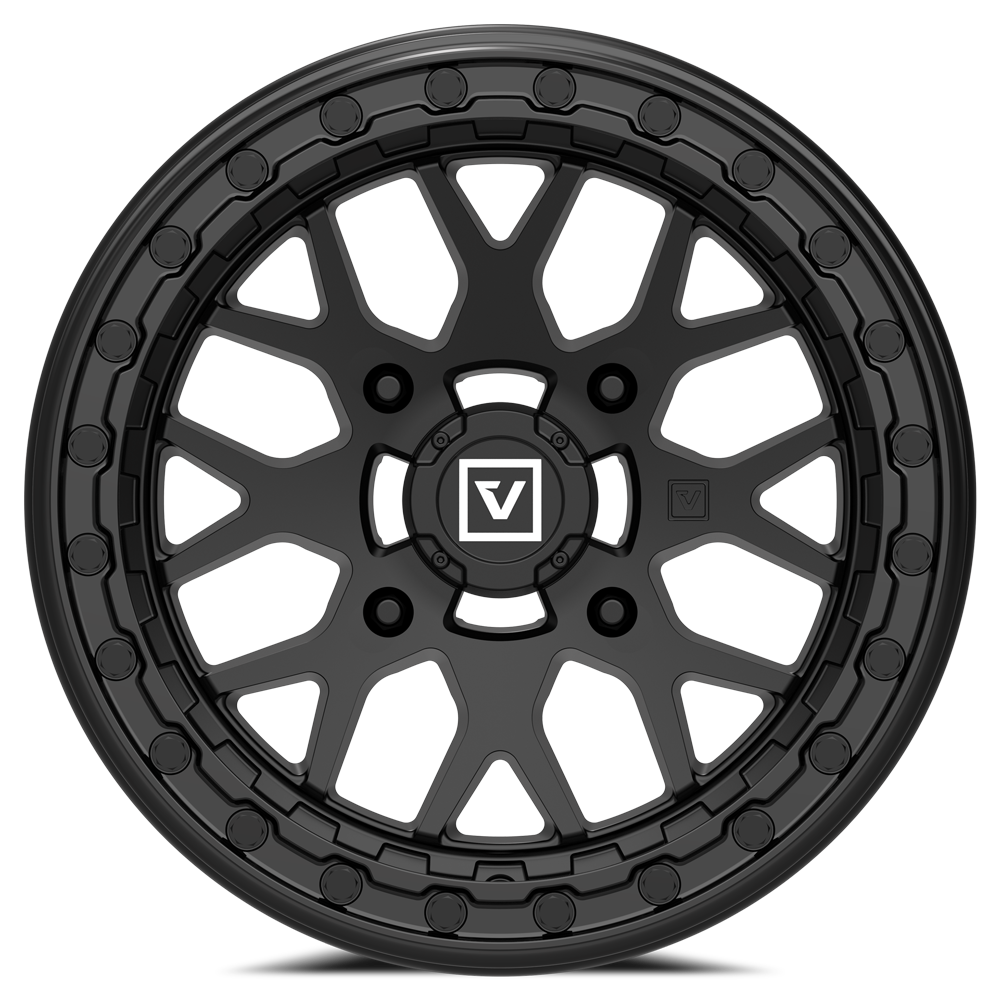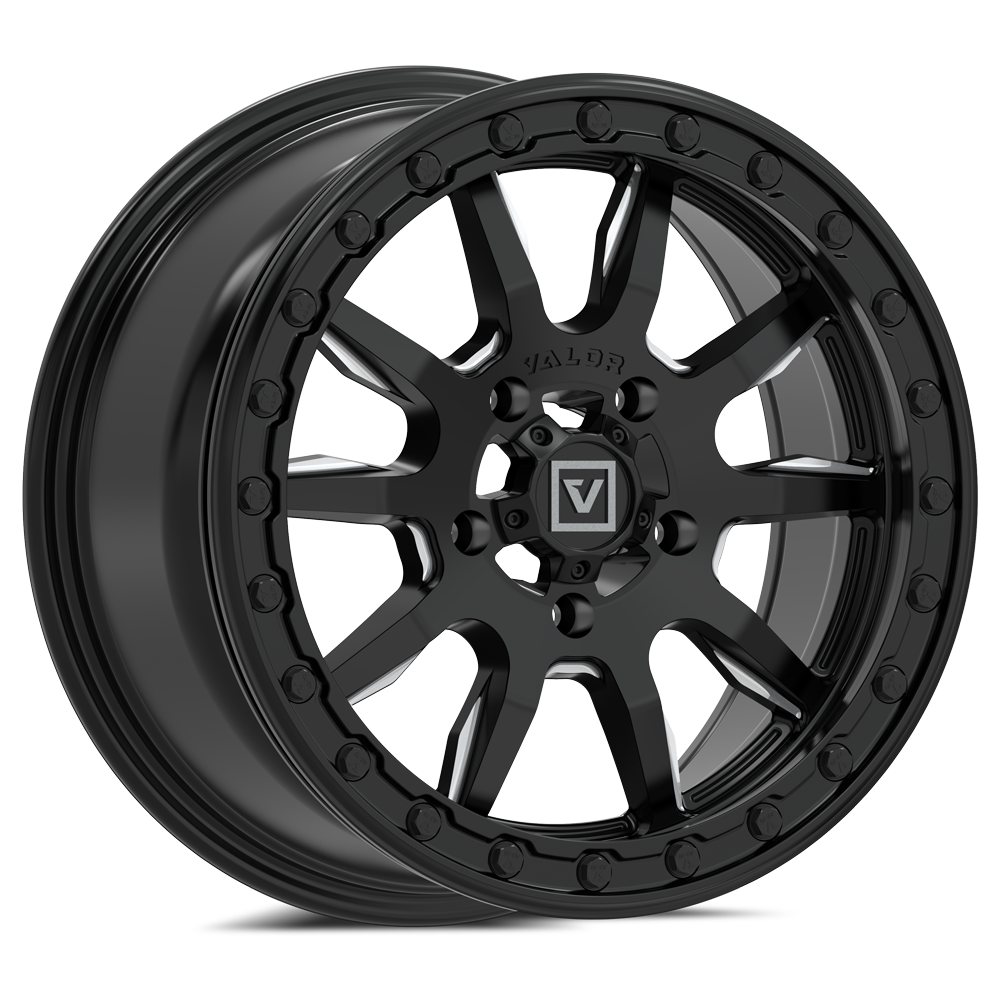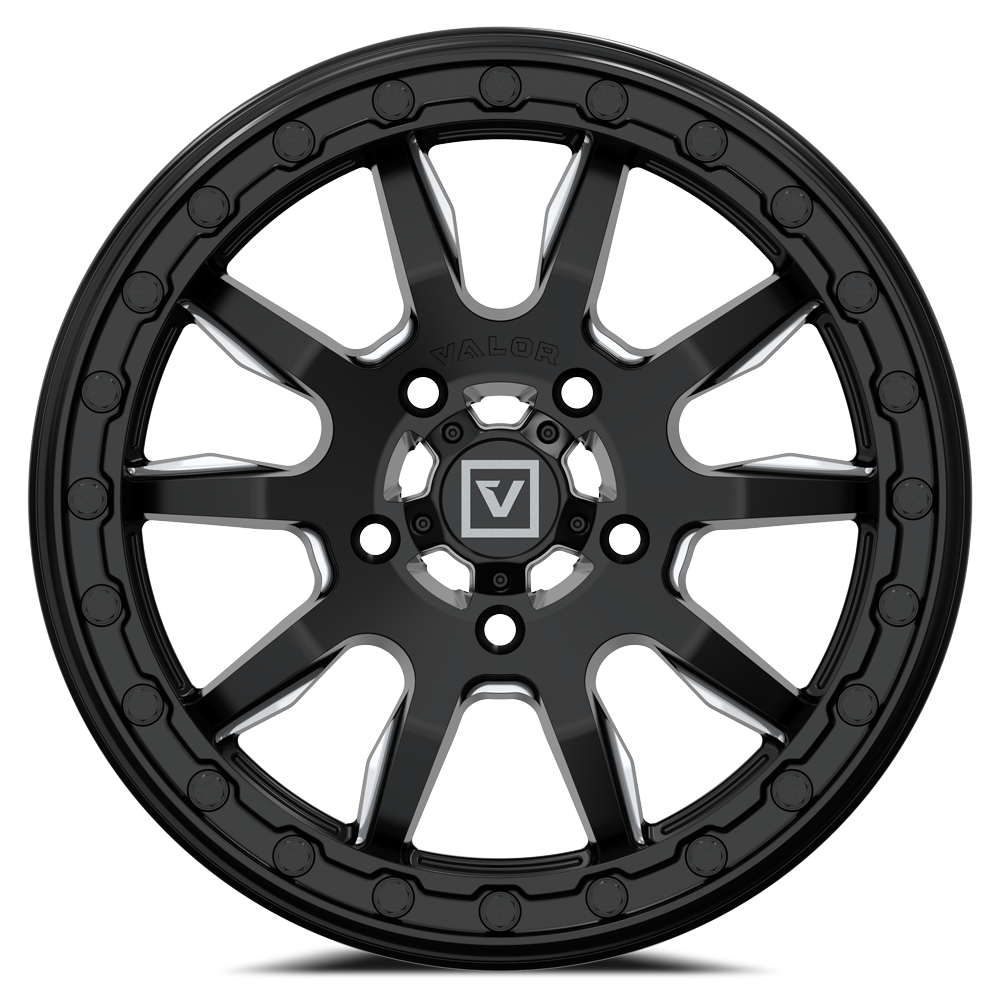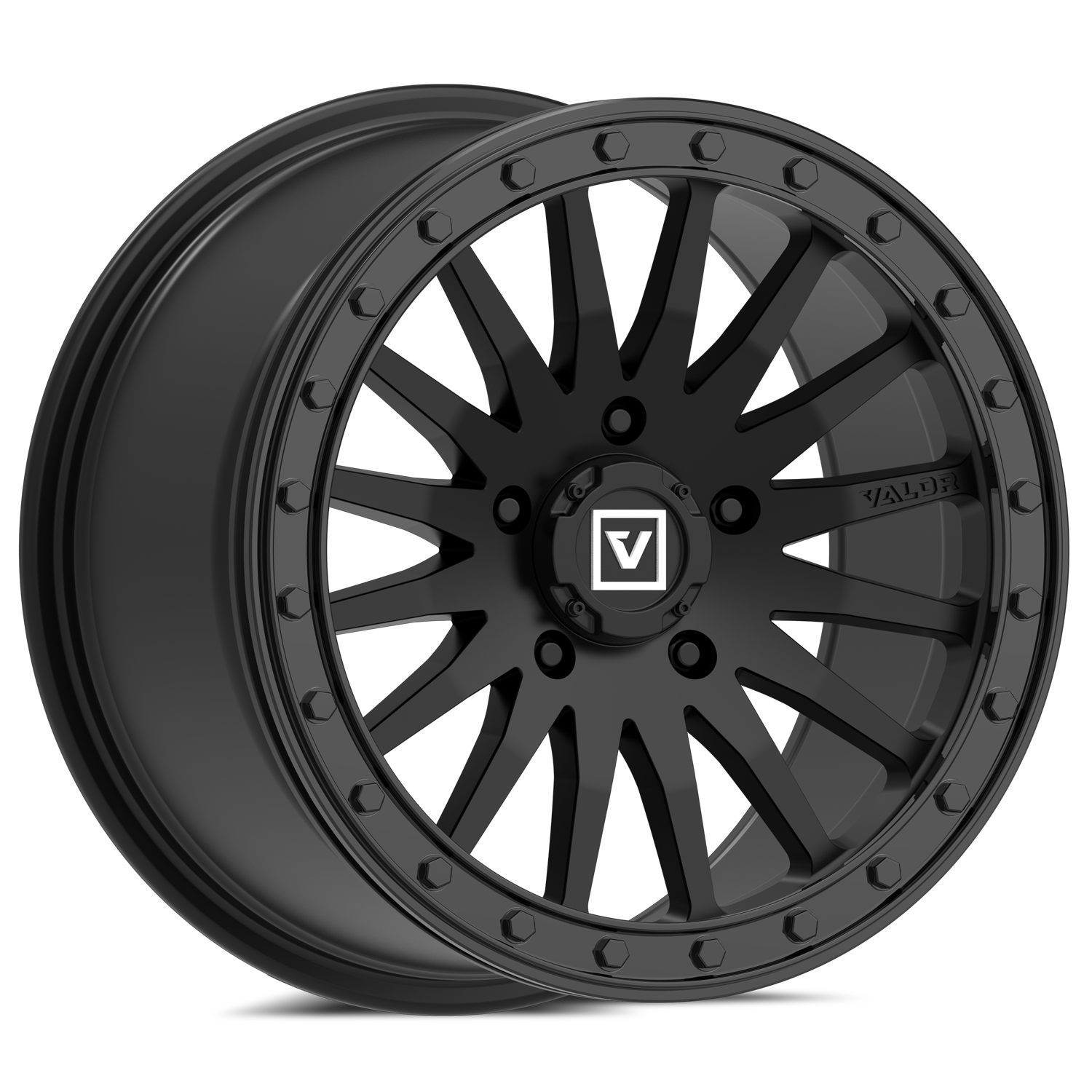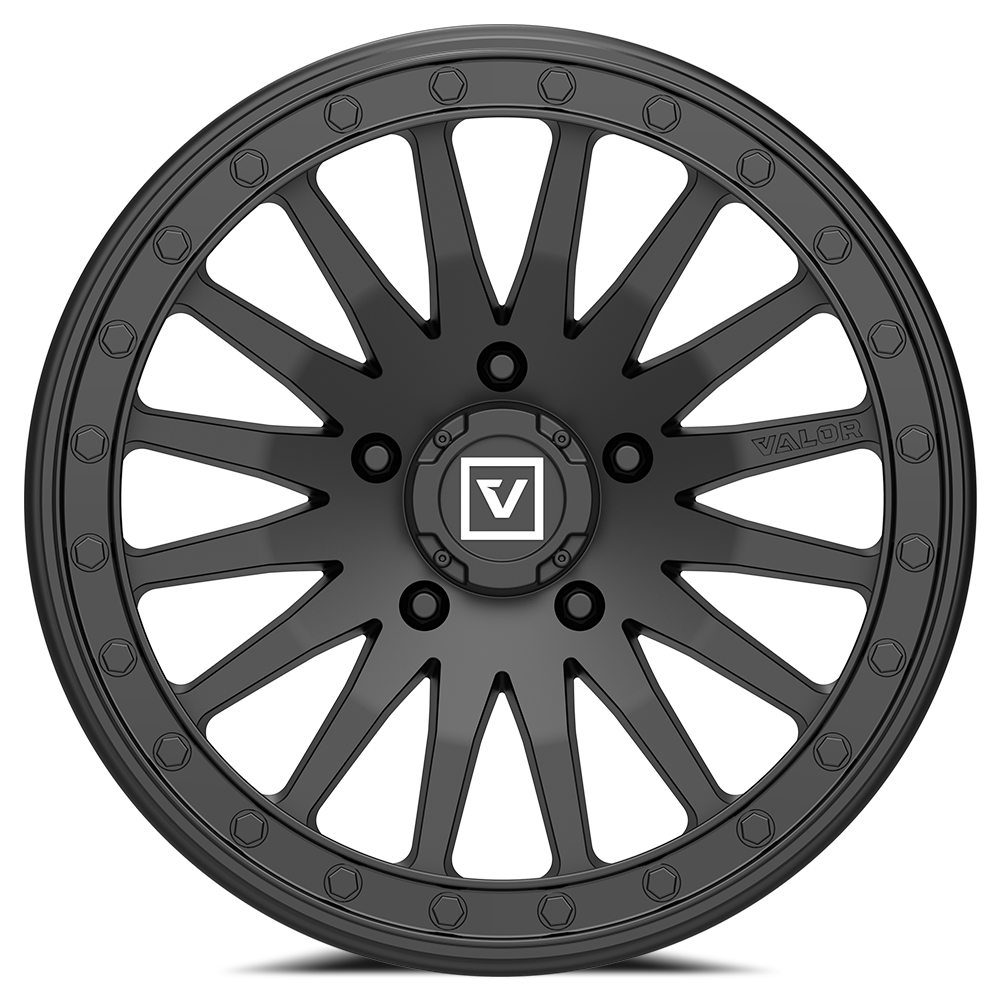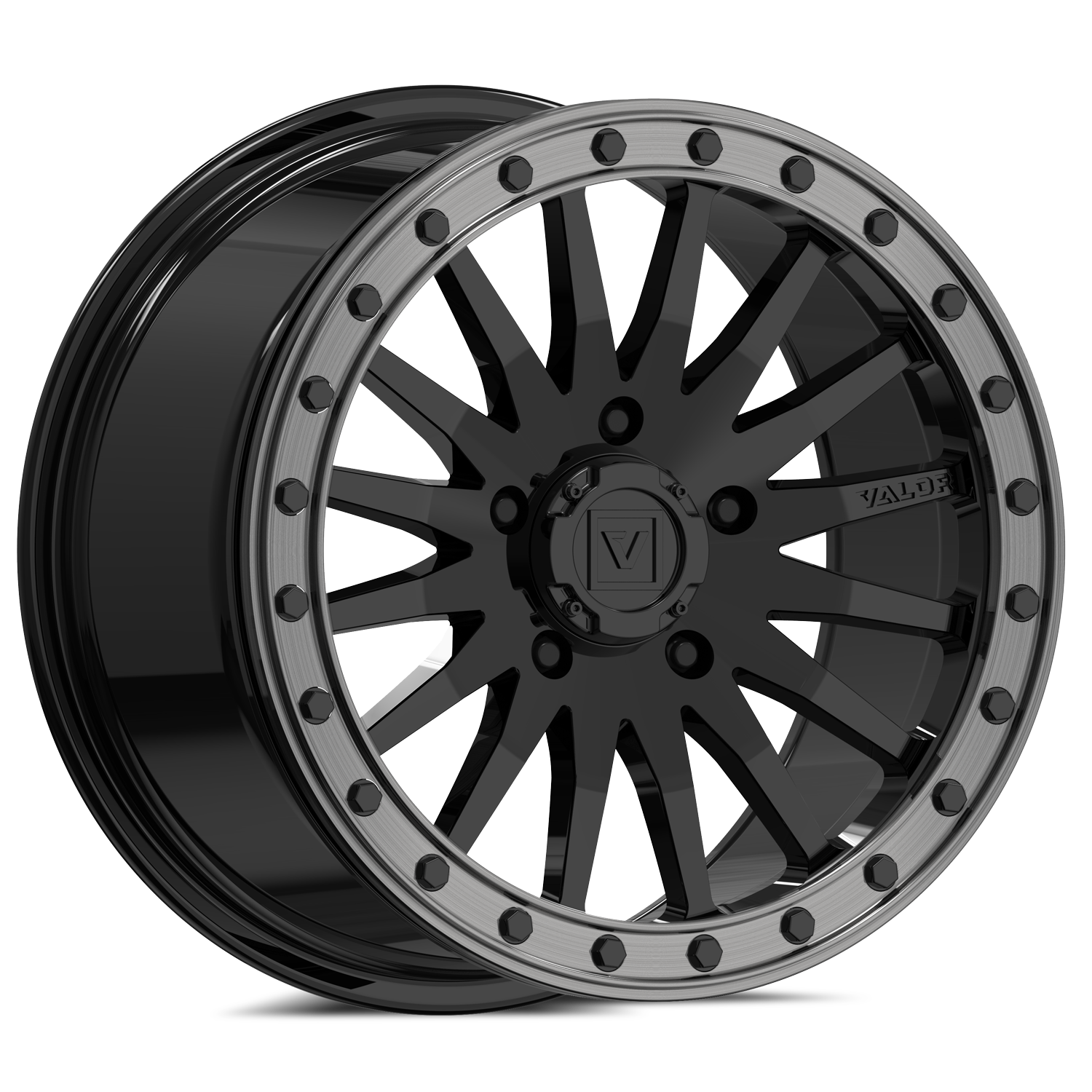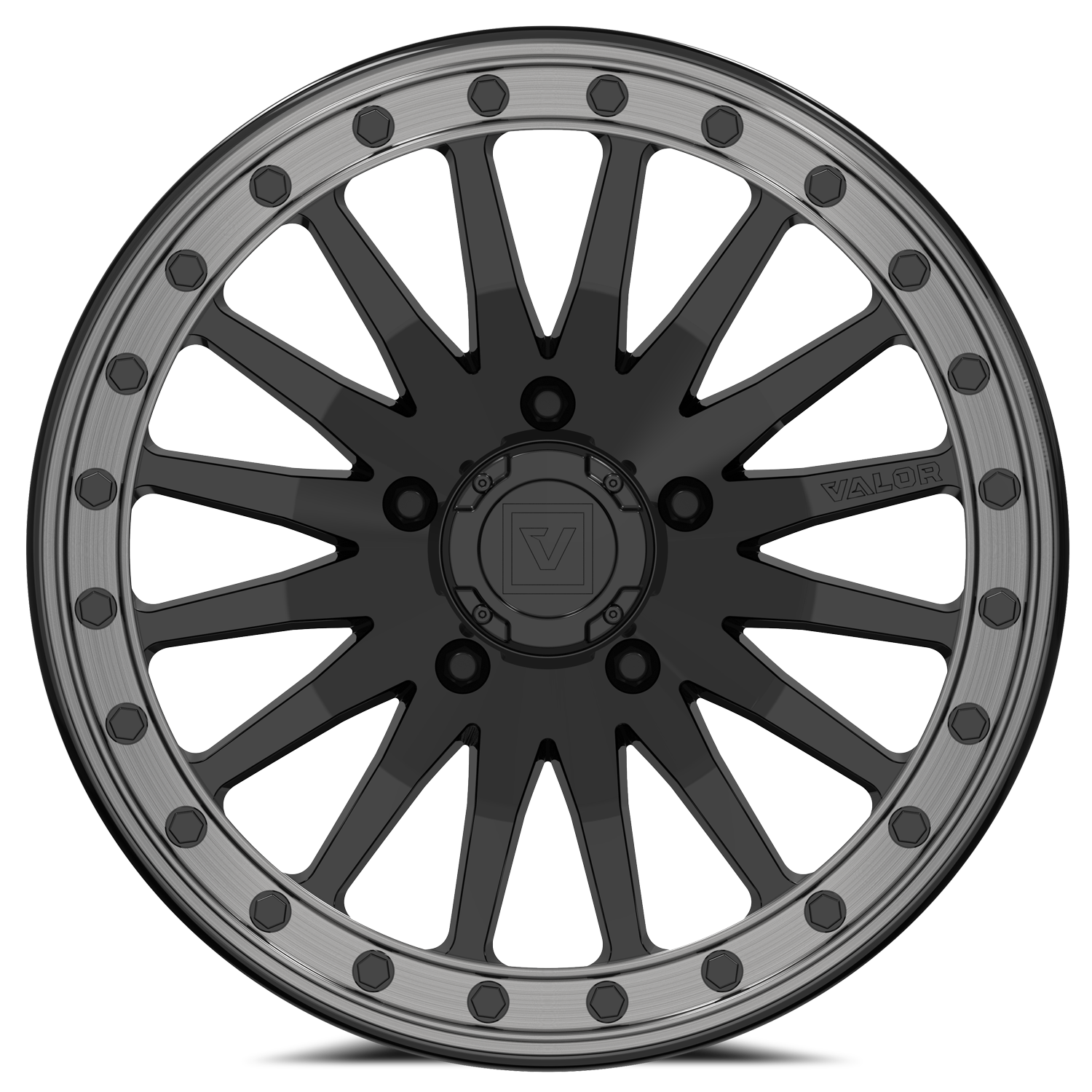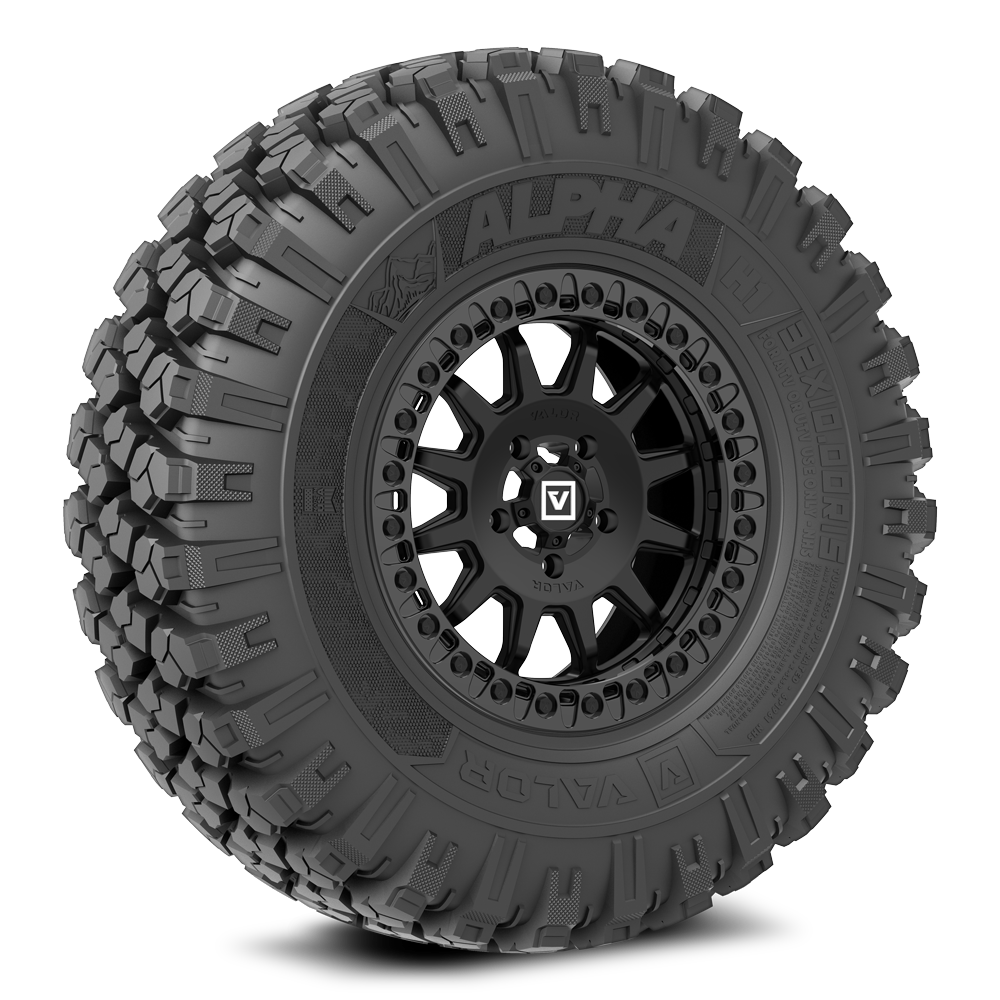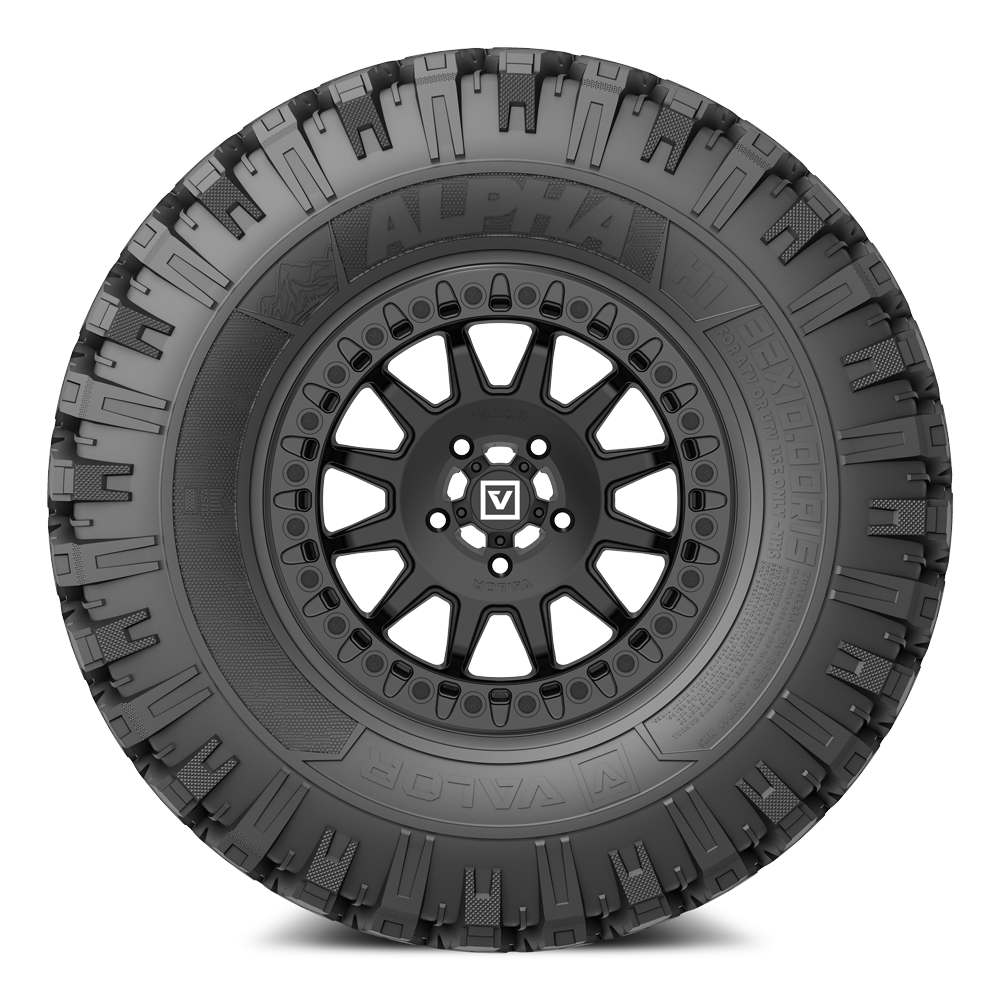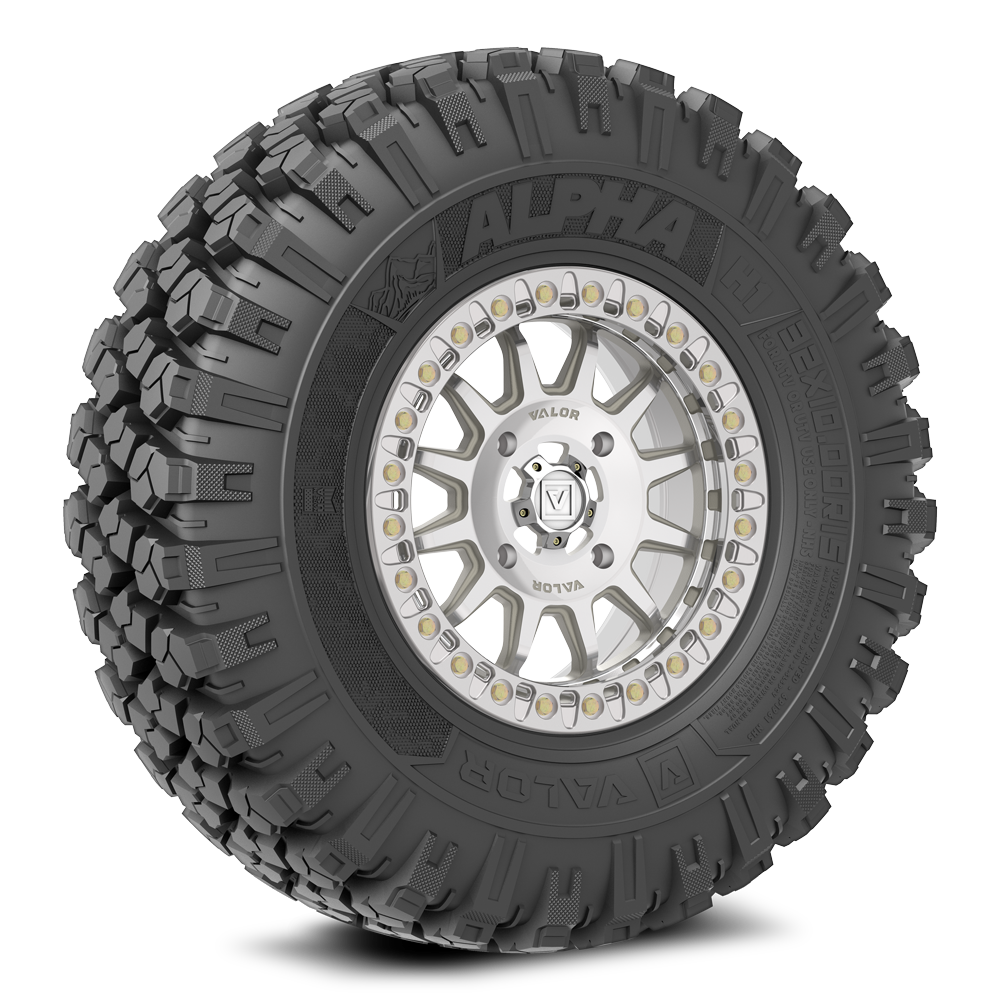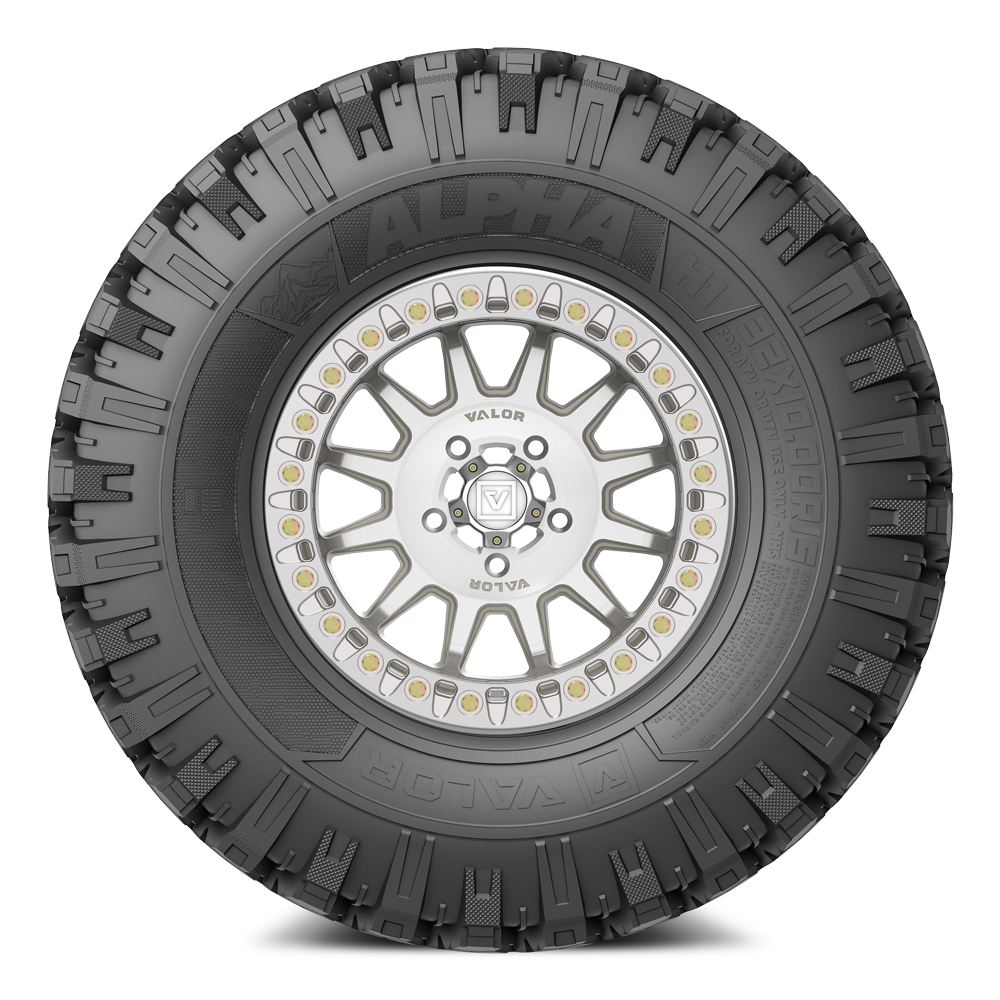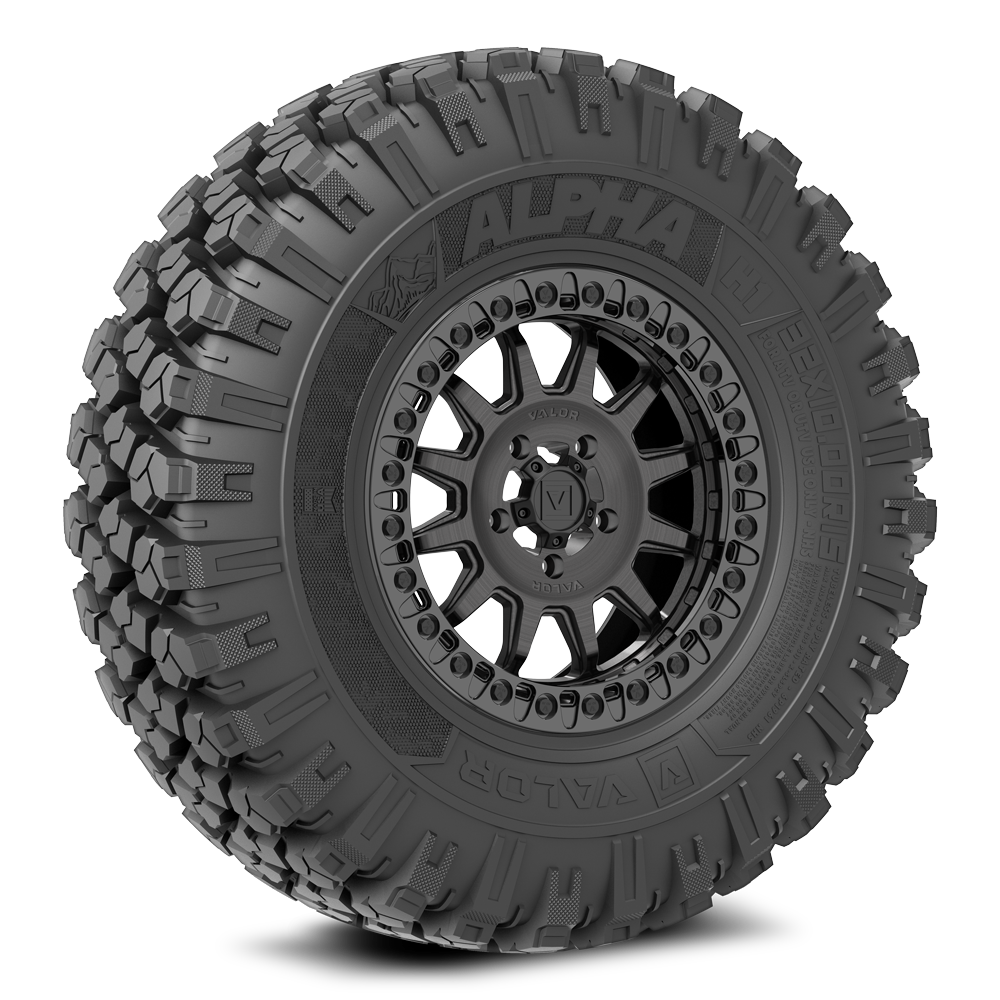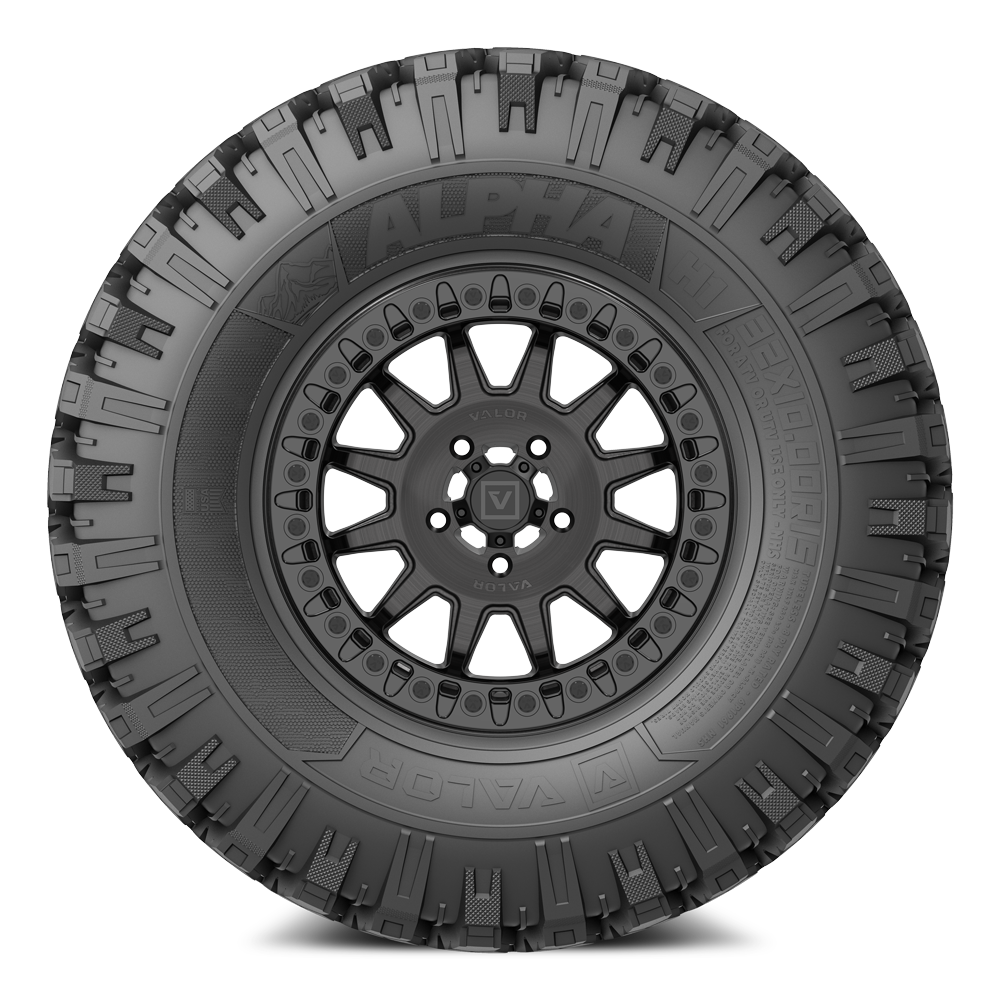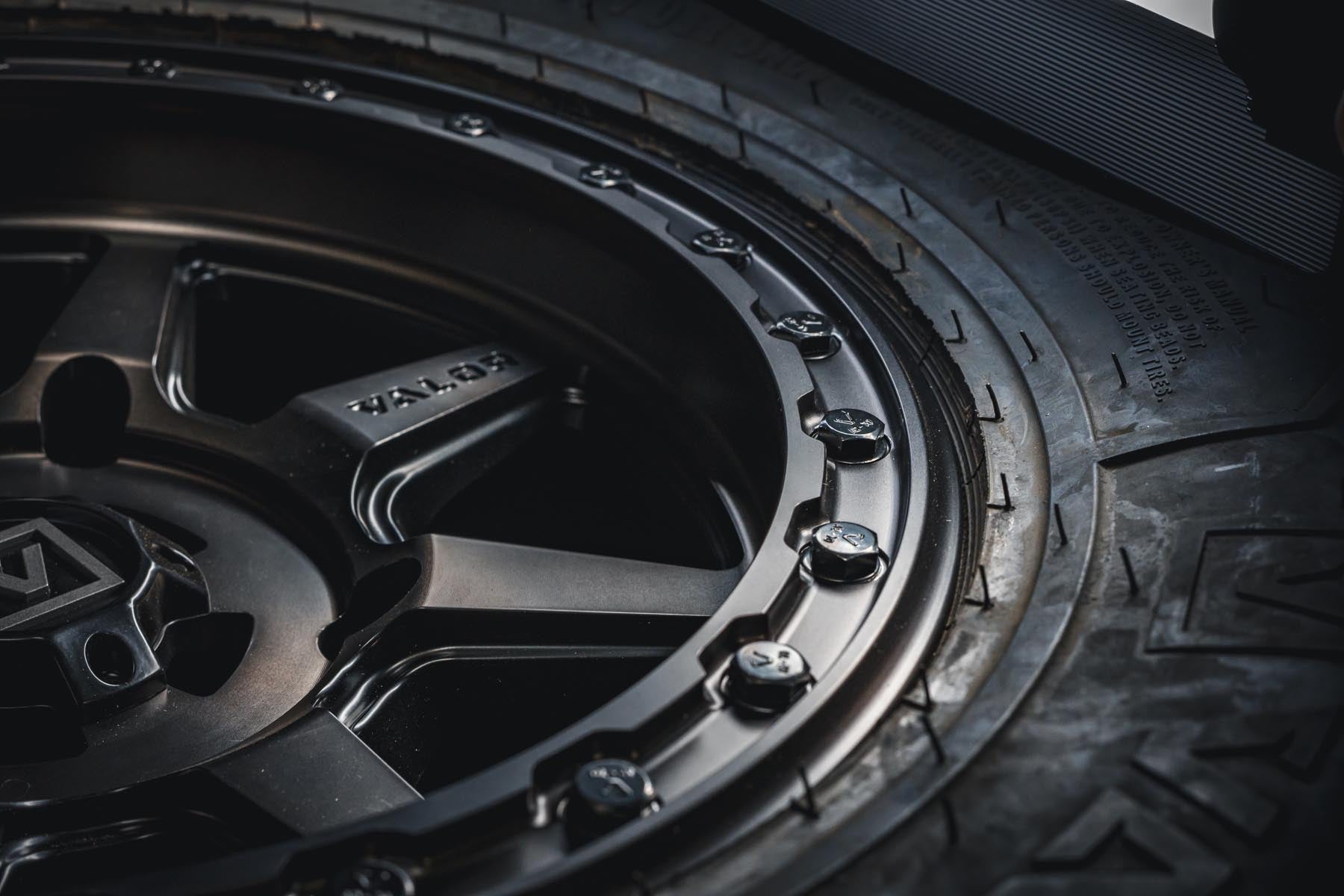The Basics:
Offset:
- Wheel offset is calculated by measuring the distance between the centerline and the hub mounting surface (back of the wheel face). It is measured in millimeters.
- Offset plays a significant role in determining a wheel's appearance. UTV wheels with a low or negative offset often make the wheel's surface more concave and, depending on how aggressive the wheel is, create a deep lip. Offset not only affects how the wheel fits on a vehicle but also plays a significant part in determining its style.
Backspacing:
- Instead of measuring from the wheel's centerline, backspacing is the distance between the hub mounting surface and the wheel's backside.
- Backspace is less precise, using inches as primary measurement, while offset is exact, using millimeters as primary measurement.
Correct offset and backspacing allow enough room for the suspension, brake, tires, and steering systems to operate without interference from the wheel. Below you'll find numbers correlating to how your utv wheels will mount on your vehicle's hub assembly. Depending on the offset or backspacing of the wheels you select, they may push past the OEM width, remain stock, or tuck under your fender. This movement of the wheel assembly is achieved exclusively through wheel offset and backspacing, without any other modifications to your suspension or vehicle.
Why is this important?
If you're like most brand-new UTV customers, you probably want to keep your suspension and vehicle width close to stock. The thought is that your vehicle's manufacturer spent thousands of hours (and dollars) engineering the perfect geometry. Knowing your UTV's OEM offset will help you find aftermarket UTV wheels that come as close to OEM fitment as possible.
Some of you may have bought a 64" wide base but want more overall width. In this case, you'd benefit from a low-offset wheel to push the wheels out, thereby improving your overall width without incurring additional costs (other than the cost of new wheels).
Example: Polaris RZR Pro R

The Polaris RZR Pro R has a 74" width from the factory. Tinkering with your offset can adjust the overall vehicle width by several inches, so if you're concerned about fitting a superwide machine like the Pro R in your new enclosed trailer, inches matter.

Polaris RZR Pro R features a 15x7 +62mm offset OEM wheel, which translates to a 6.44" backspacing. You will often hear people refer to this as a 6+1 setup, meaning 6" backspacing and 1" lip, resulting in a 7" total wheel width.
Stock 2024 RZR Pro R wheels: 15x7 61.85mm (or 6.44)
| EXAMPLE 1 | OFFSET | BACKSPACE |
| RZR Turbo R | +62mm | 6.44" |
| V09 UTV wheel | +40mm | 5.57" |
| DIFFERENCE | +22mm | 0.87" |
| EXAMPLE 2 | OFFSET | BACKSPACE |
| RZR Turbo S | +55mm | 6.17" |
| V03 UTV wheel | +25mm | 4.98" |
| DIFFERENCE | +30mm | 1.19" |
Examining the Polaris RZR Turbo R and RZR Turbo S offsets and backspacing examples above, the Valor Offroad V09 UTV wheel would be considered a 5+2, and the Valor Offroad V03 UTV wheel would also be considered a 5+2, despite a 30mm difference between the two. You can quickly see why general backspacing isn't as specific as offset, as most people generalize a 4.98+2.02 as a 5+2, and a 5.57+1.43 is also often represented as a 5+2. Valor Offroad will always use the offset measurement to give the end user an exact fitment measurement.
Let's examine some extreme visual examples below to provide a clear overview of how backspacing can significantly alter the fitment of your wheels and tires.

A negative offset (-47mm) features very deep wheel spokes that bend back from the lip edge, creating a deep dish styling. You'll commonly see this offset type on sand machines that aim to transfer power to the rear wheels for improved traction. On the other end is a +50mm offset close to the OEM wheel spec. As you can see in the example above, a +50mm offset requires a spoke design with little to no depth, making it almost flush with the lip edge. Your OEM UTV wheels are boring straight from the factory because they have a very high offset, which allows for little to no lip or spoke design depth.

Check out our varying offsets:
Backspacing is a general measurement that takes into consideration the available space you have behind the mounting pad of your wheels, hence why high offset utv wheels have a high backspace (6+1) and deep dish negative offsets have a low backspacing (1+6), first number being the space behind mounting area and second number being the available space in front of the mounting pad (think spoke design). An easier example of this conversion would be a 7" wide wheel with a 3.5-inch backspacing, equating to a zero offset (+0mm). Since the mounting surface aligns with the wheel's centerline, the wheel has zero offset.
Want to keep things stock? Do you need to match OEM spec? Absolutely not.
7" WIDE SPECS
|
OFFSET |
WIDTH GAIN |
| 6+1 / +55mm | 0.0-1.5" wider per side over stock |
| 5+2 / +35mm | 1.0-1.5" wider per side over stock |
| 4+3 / +15mm | 1.5-2.0" wider per side over stock |
| 3.5+3.5 / +0mm | 1.5-2.5" wider per side over stock |
| 2+5 / -47mm | 4"+ wider per side over stock |
8" WIDE SPECS
|
OFFSET |
WIDTH GAIN |
| 6+2 / +40mm | 1.0-1.5" wider per side over stock |
Valor Offroad UTV Wheel Backspacing Conversion Chart
| STYLE |
|
|
| V01 15x7 | +15mm | 4.59 (4+3) |
| V02 15x7 | +20mm | 4.79 (4+3) |
| V03 15x7 | +25mm | 4.98 (5+2) |
| V03 15x10 | +0mm | 5.50 (5+5) |
| V03 14x7 | -32mm | 2.74 (2+5) |
| V04 15x7 | +15mm | 4.59 (4+3) |
| V05 15x7 | +35mm | 5.38 (5+2) |
| V06 15x8 | +40mm | 6.07 (6+2) |
| V06 15x10 | +25mm | 4.52 (4+6) |
| V07 15x7 | +25mm | 4.98 (5+2) |
| V08 15x7 | +30mm | 5.18 (5+2) |
| V09 15x7 | +40mm | 5.57 (5+2) |
| V09 17x8 | +40mm | 6.07 (6+2) |
| V13 15x7 | +10mm | 4.39 (4+3) |
| V14 14x7 | +20mm | 4.79 (4+3) |
| V14 15x7 | +20mm | 4.79 (4+3) |
| V15 15x7 | +45mm | 5.77 (5+2) |
Why do we have two measurements for the same thing?
One of the biggest complaints among new UTV and ATV owners is confusion over offset versus backspacing. If offset and backspacing both provide you with essentially the same information, why do we have two versions? Offset is the automotive industry standard, and the powersports industry adopted backspacing. If you come from an automotive background, you're more than likely used to offset, hence why we see both.
You've probably heard of low-offset, mid-offset, and high-offset wheels. Click the links to learn more and view our current inventory.
Do you need to find out which Valor Offroad products fit your specific vehicle? Check out our Fitment Guide.

